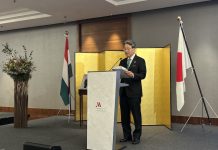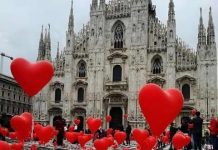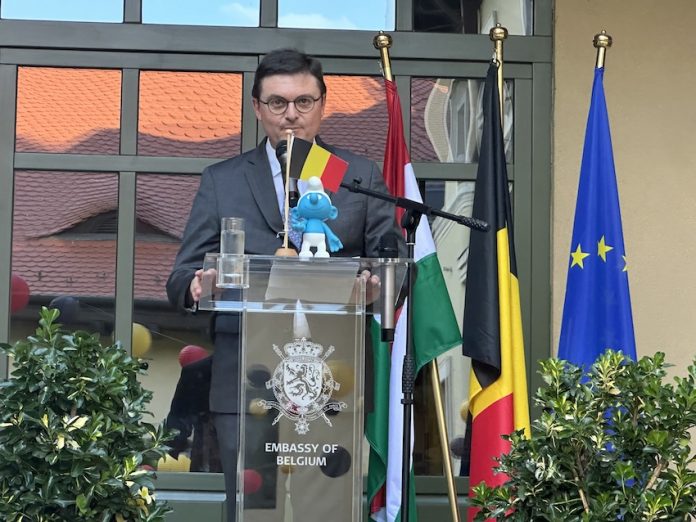“21 July reminds us not only of who we are, but also of what we can achieve together – as Belgians and as Europeans.” – His Majesty King Philippe
Edited by Anna Popper
To mark Belgian National Day, H.E. Mr. Jeroen Vergeylen, Ambassador of the Kingdom of Belgium to Hungary, hosted a grand reception in the garden of his residence in Budapest, adorned with the colours of the Belgian flag.
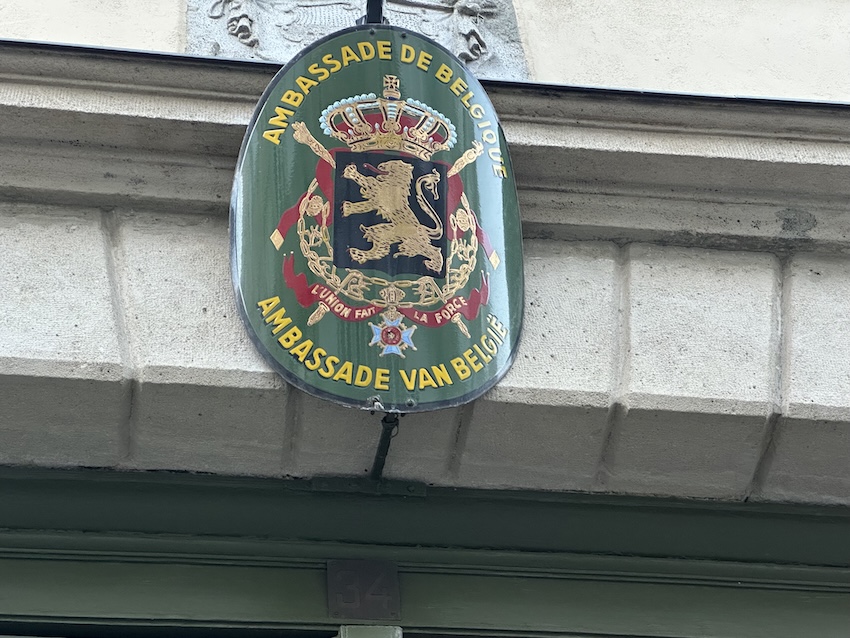
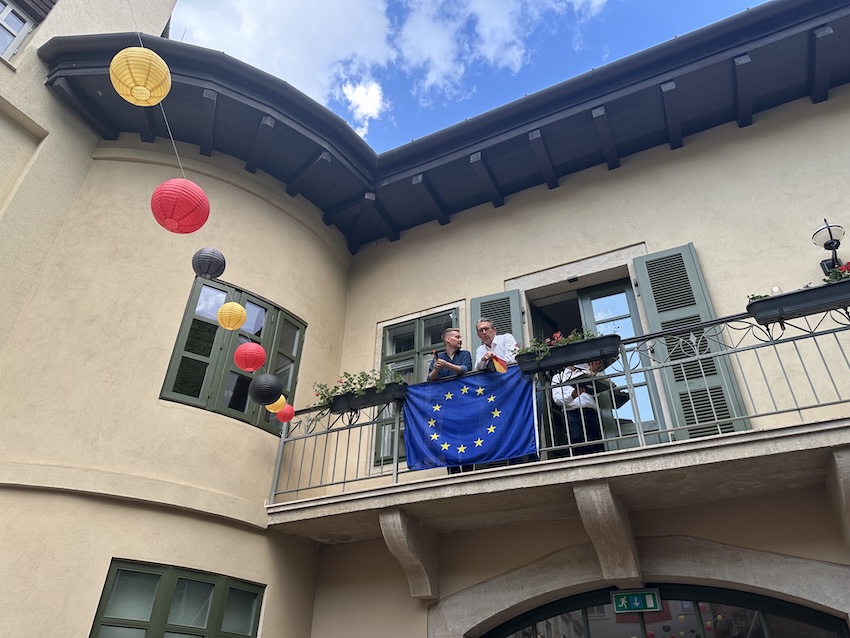
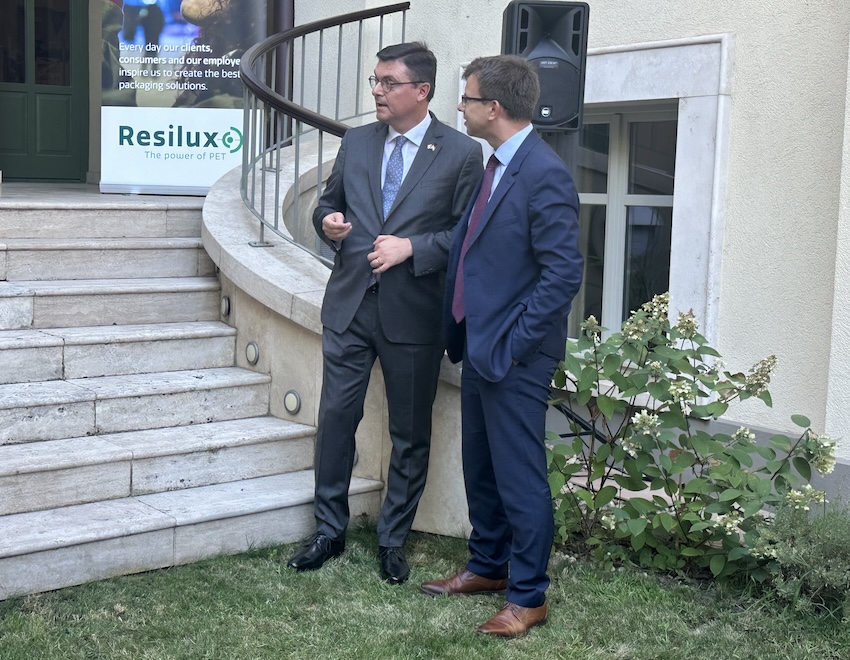
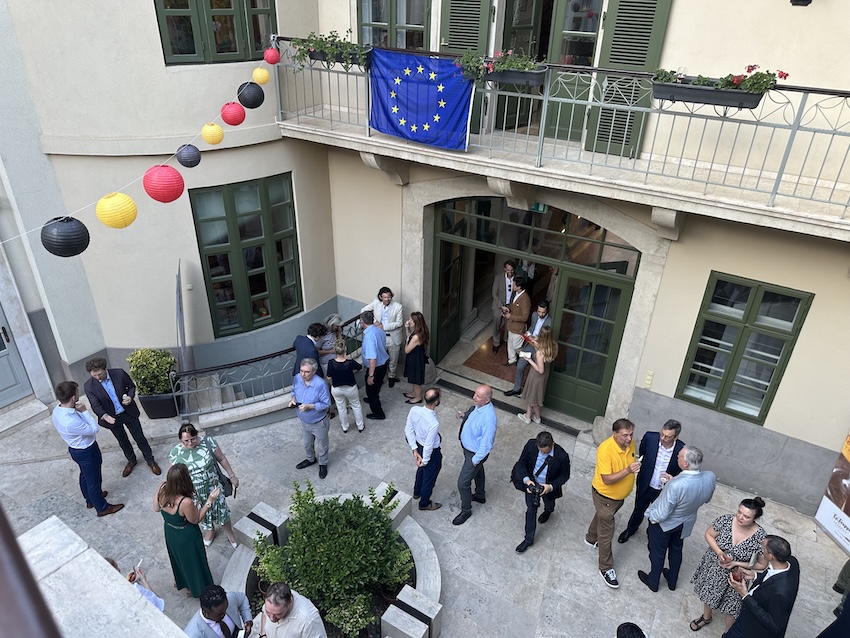
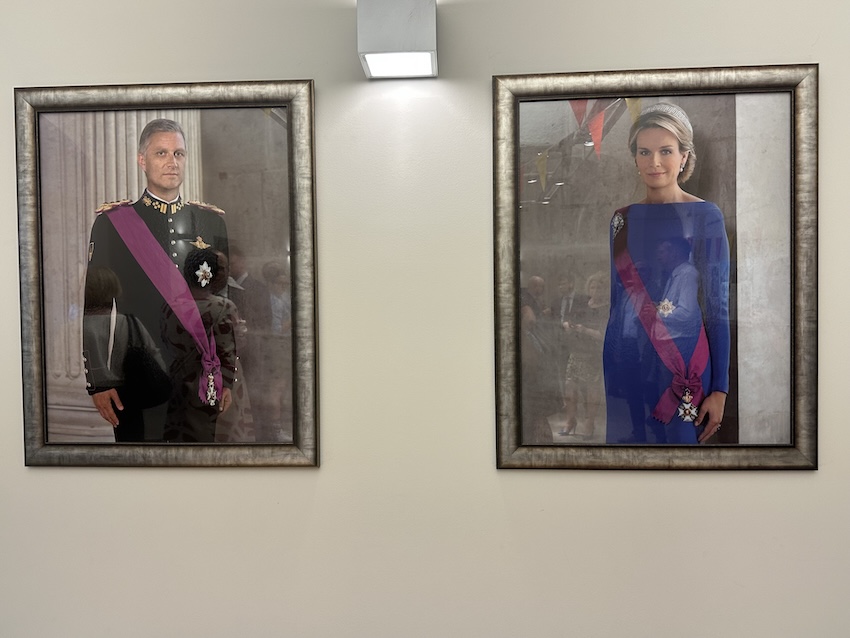
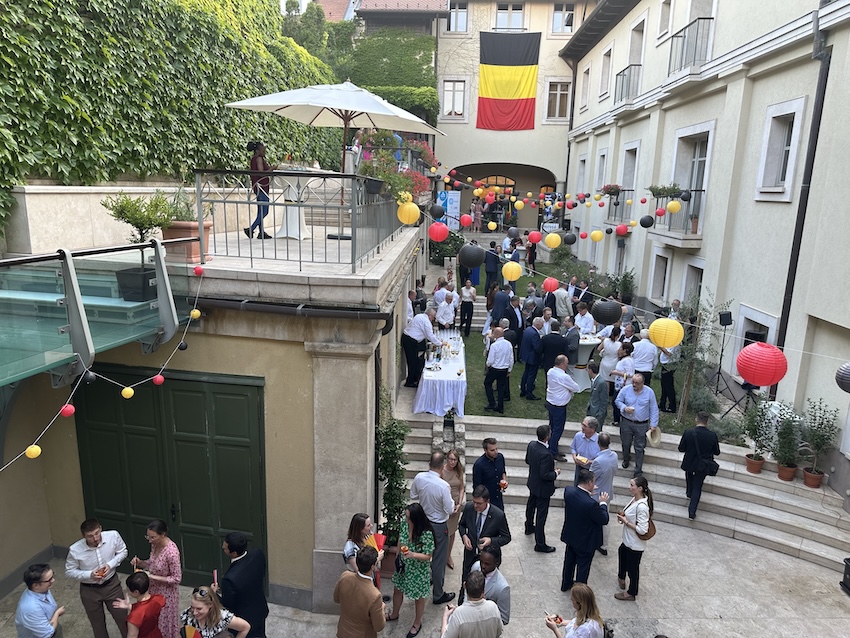
The gathering brought together a large number of distinguished guests: representatives of Hungarian state institutions and NGOs, members of the diplomatic corps, and figures from the business, cultural, and academic spheres, along with the Belgian community in Hungary and many friends of the country.
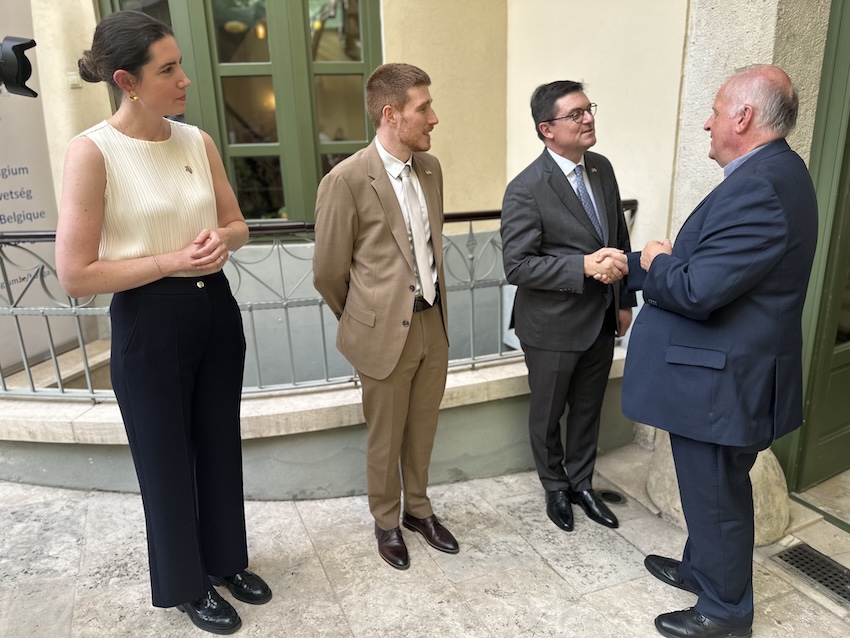
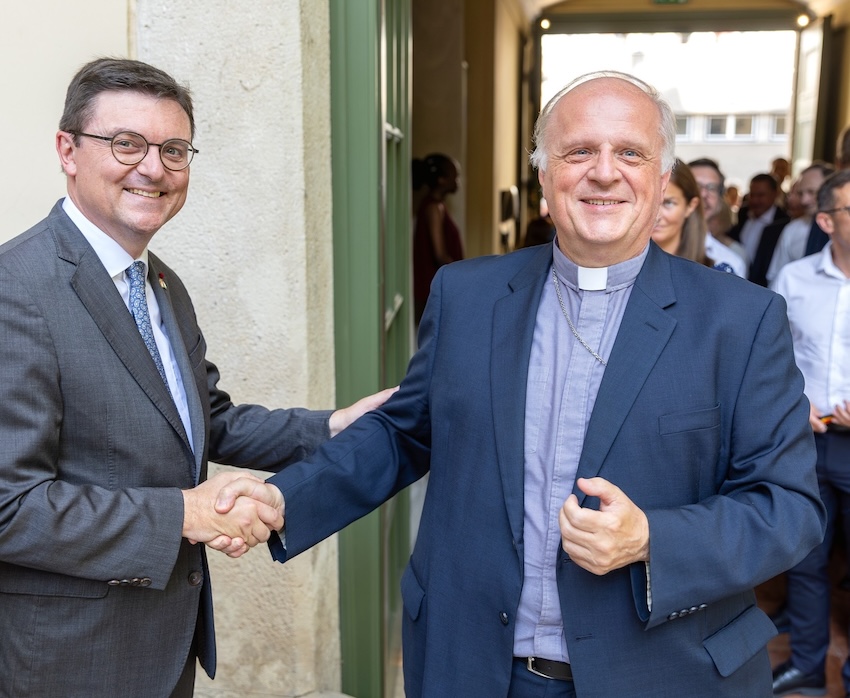




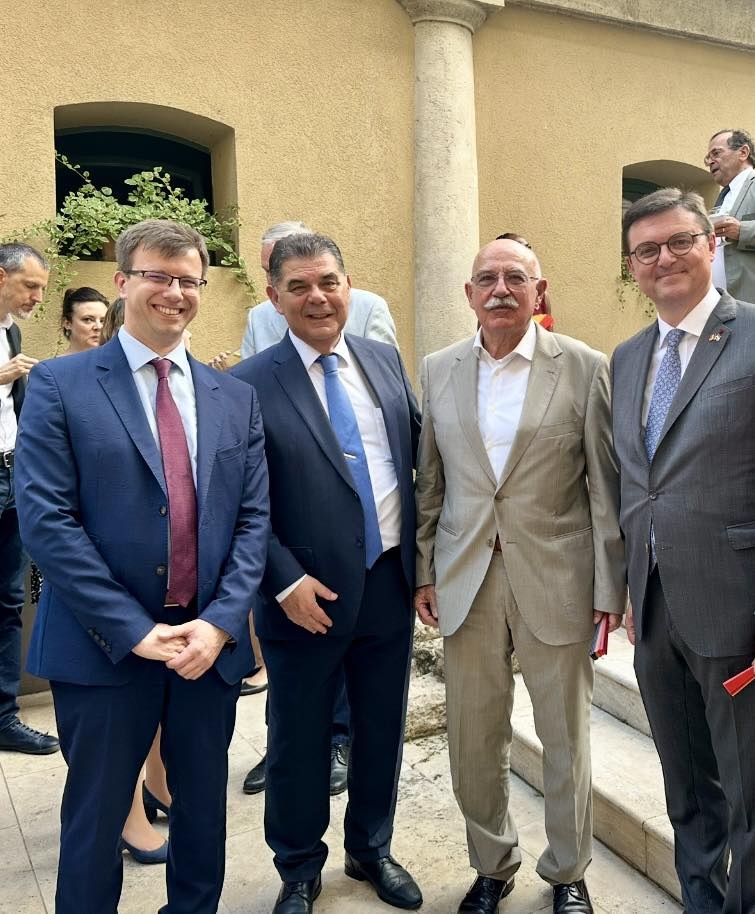
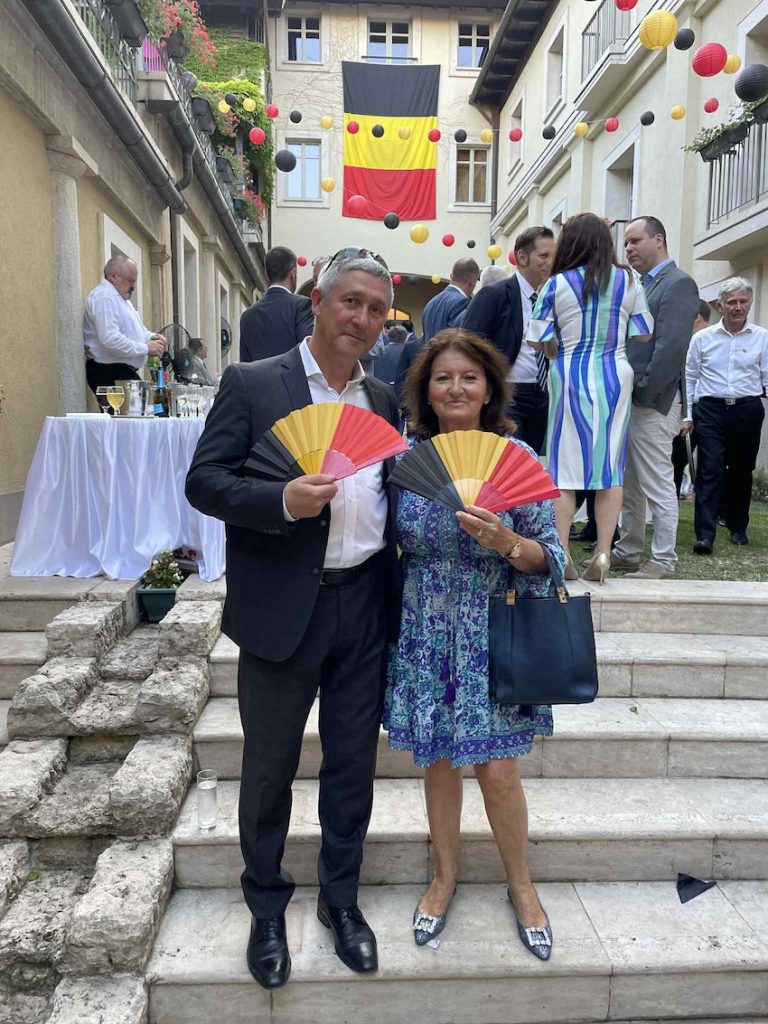
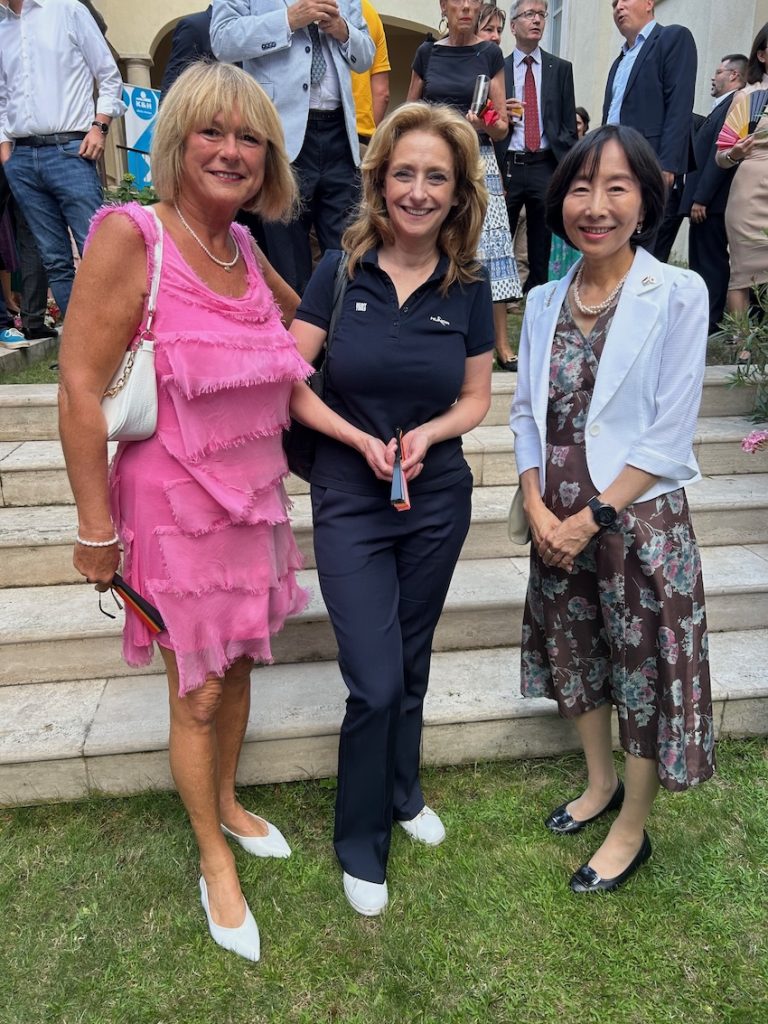




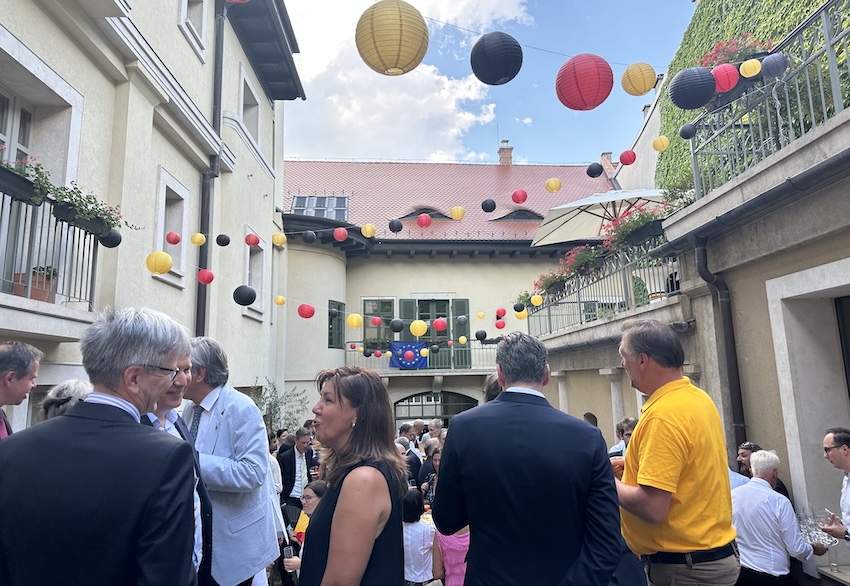
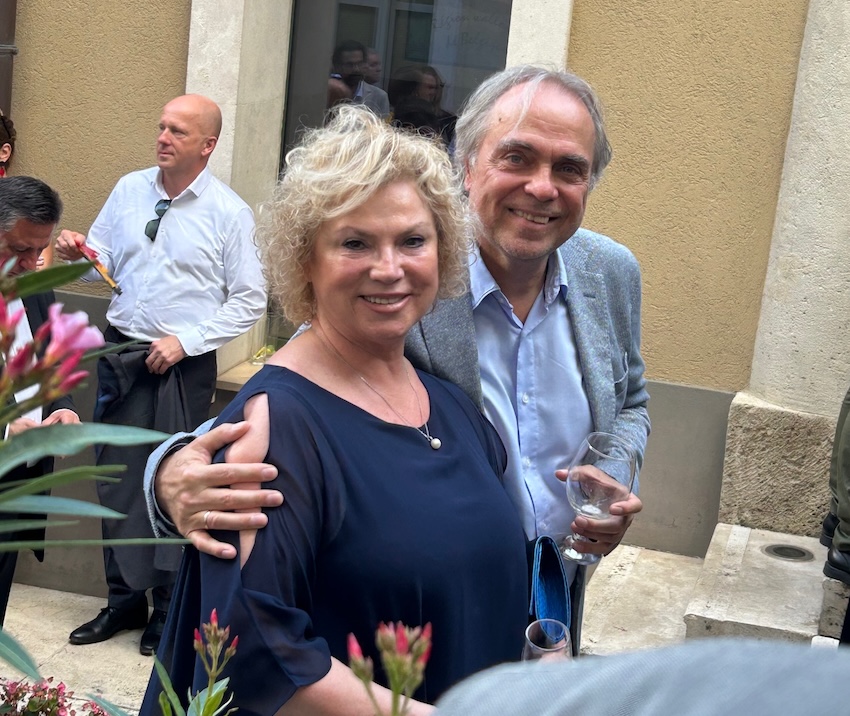
The Guest of Honour was Mr. János Bóka, Minister of European Union Affairs of Hungary.
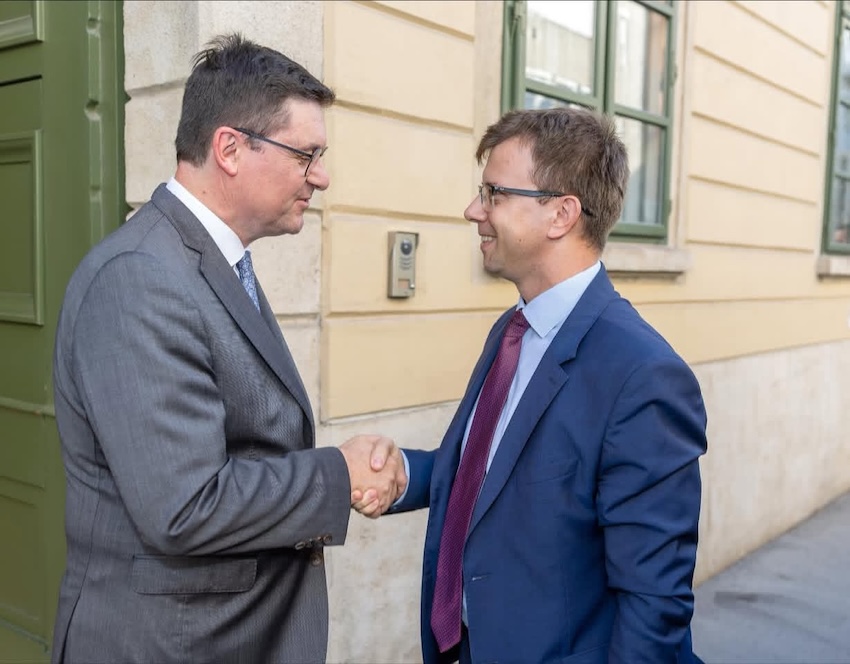
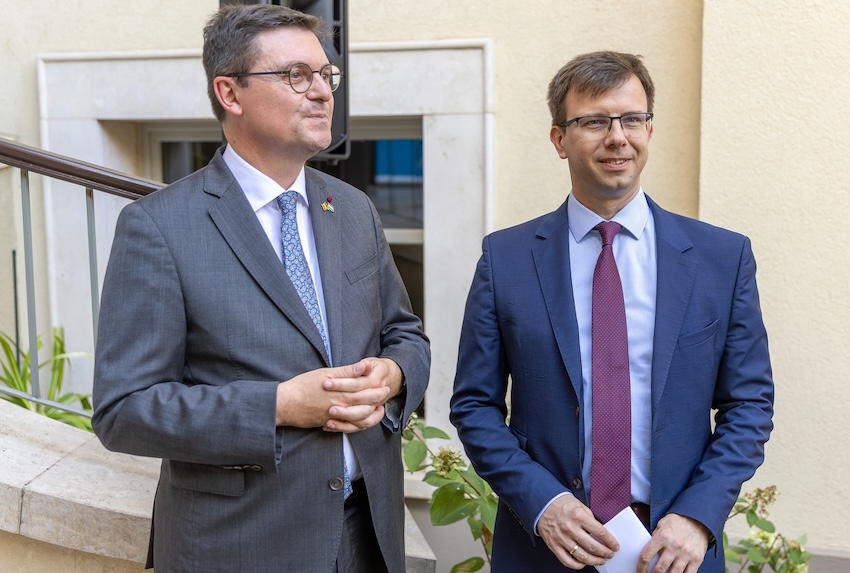
The event commemorated the historic oath of King Leopold I on 21 July 1831, the day Belgium’s first monarch swore allegiance to the Constitution – an act that laid the foundations for the modern Belgian state.
Belgium declared its independence on 4 October 1830, following the Belgian Revolution. The newly formed National Congress chose a constitutional monarchy as the nation’s form of government. Since then, Belgian National Day has been a highly significant annual event.
The celebration at the Embassy began with the welcome words by Raphaël Schröder, Deputy Head of Mission.

It was followed by the national anthems of Belgium, Hungary, and the European Union, performed by Zsüliett Mikes, winner of the 25th Francophone Song Contest of the French Institute in Budapest, accompanied by a trio of Hungarian musicians.

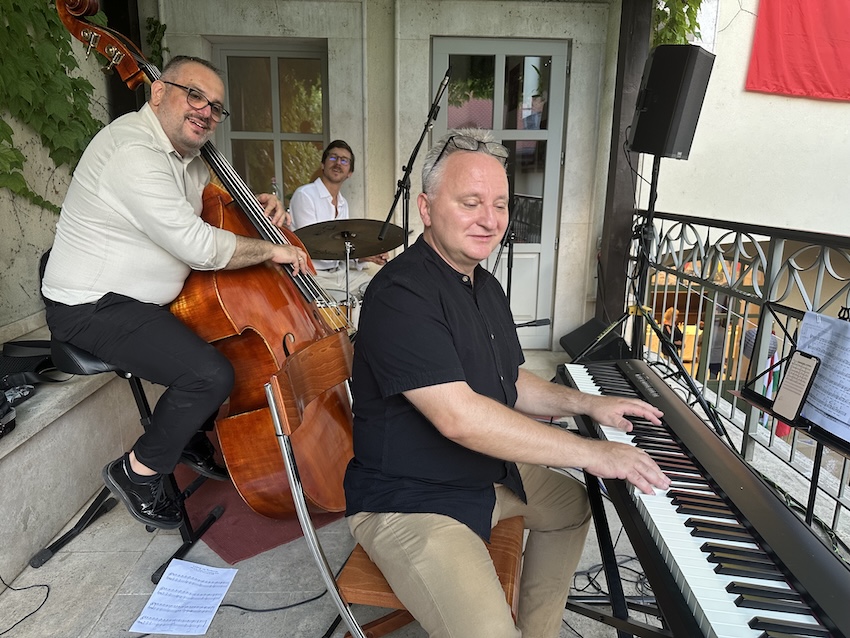

Then Ambassador Jeroen Vergeylen addressed the guests, beginning in Hungarian to the delight of the audience. His confident pronunciation and engaging manner were particularly appreciated, reflecting his notable progress since arriving in Hungary two years ago:
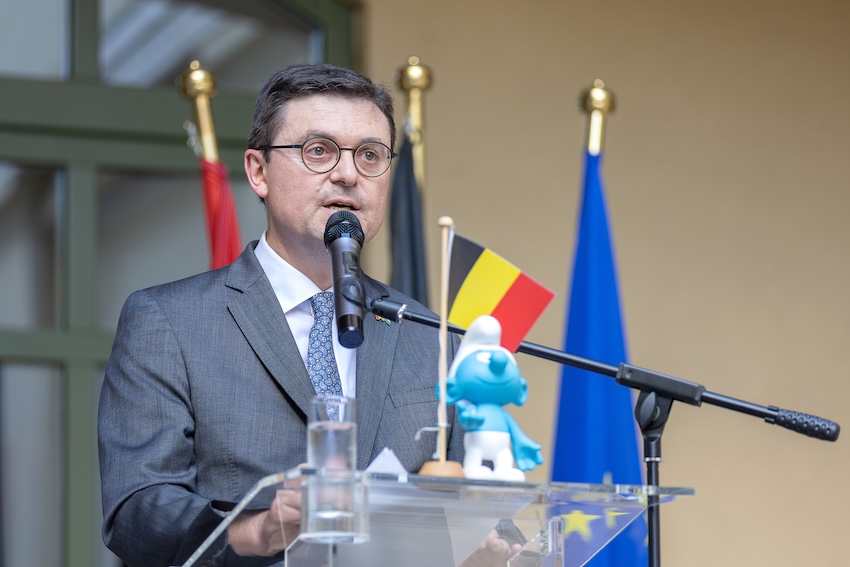
“Dear Minister, Excellencies, Members of Parliament, Mayors, distinguished guests, dear friends of Belgium and Hungary,
I am very happy that, despite the heat, so many of you have come to celebrate the National Day of the Kingdom of Belgium with us. A very ‘warm’ welcome to the Belgian Residence and Embassy on the occasion of our National Day reception. If you think it’s too hot, I can recommend a stay in Belgium, where it is now a pleasant 20 degrees Celsius with cooling rain showers. However, I would strongly recommend staying here and getting a cold beer and some chocolate ice cream – both Belgian, of course!
Chers amis, Beste vrienden, Liebe Freunde, Dear Guests,
You are in a historic place. This is where our Embassy was established when it opened in 1922. This is where Jewish Hungarians found a safe place in the last months of World War II. This is where a number of Hungarian officials and citizens found refuge when Moscow sent its troops to crush the Hungarian Revolution of 1956. For more than a century, our Embassy has been a proud resident of Viziváros, the splendid historic 1st District of Budapest, situated between the imposing banks of the majestic Danube and the monumental beauty of Buda Castle Hill. This place has become part of our shared history, and I am truly privileged to be able to open its doors to you all.
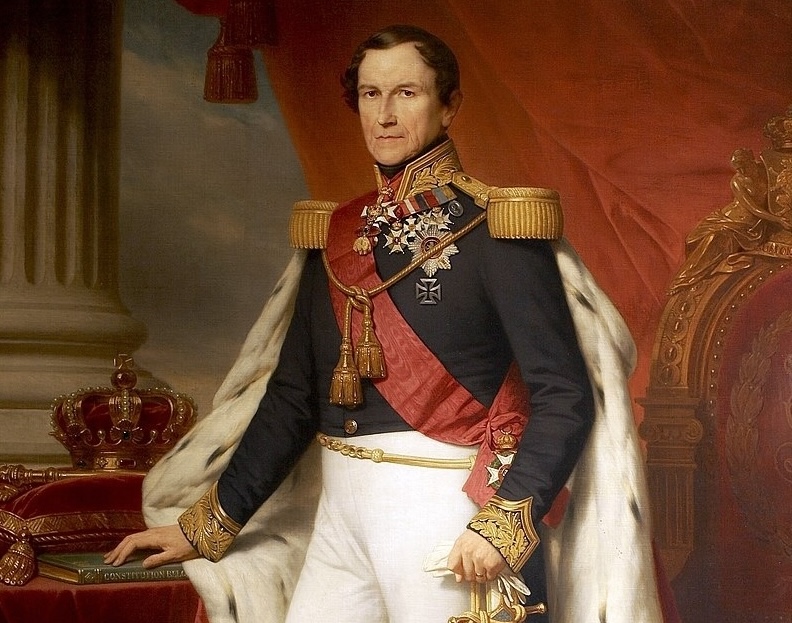
Today, we celebrate the Belgian National Day. On this day in 1831, the first King of the Belgians, Leopold I, was sworn in, pledging to respect the new Belgian constitution. Our constitution was modern and surprisingly liberal for the time. It already included principles such as freedom of the press, religion, and education. Since those early days, Belgium has consistently strived to be an open country, characterized by democratic values, the protection of individual rights, free enterprise, the rule of law, the right to a high quality of life for everyone, multilingualism, and respect for cultural and regional diversity, which makes us sensitive to the rights of minorities.
Building on these fundamental values, Belgium also became a country where everyone can be themselves, and all citizens are entitled to equal treatment in every respect, irrespective of their background, sexual orientation, or even their preference for dark or light beer.
These are the values we celebrate on 21 July. A Belgian state of mind perhaps best symbolised by the adventures of our national heroes: the absurdly blue Smurfs (Hupikék törpikék), the resourceful and hardworking Tintin, and the more-real-than-life-itself Captain Haddock.
His Majesty King Philippe summarised it as follows, in his National Day address: “21 July reminds us not only of who we are, but also of what we can achieve together, as Belgians and as Europeans.”
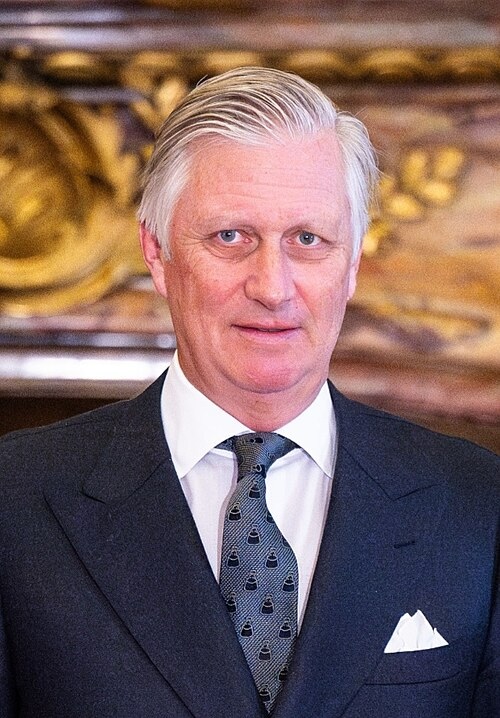
Many others have enjoyed the freedoms our country was able to offer. These include thousands of Hungarian citizens who arrived in Belgium after several revolutions, after the First and Second World Wars, and again in 1956.
Lajos Kossuth, Hungarian statesman and governor-president, fled to Brussels before moving on to the United States, but his mother remained in Brussels, where she found her final resting place.
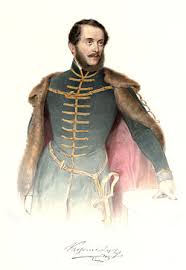
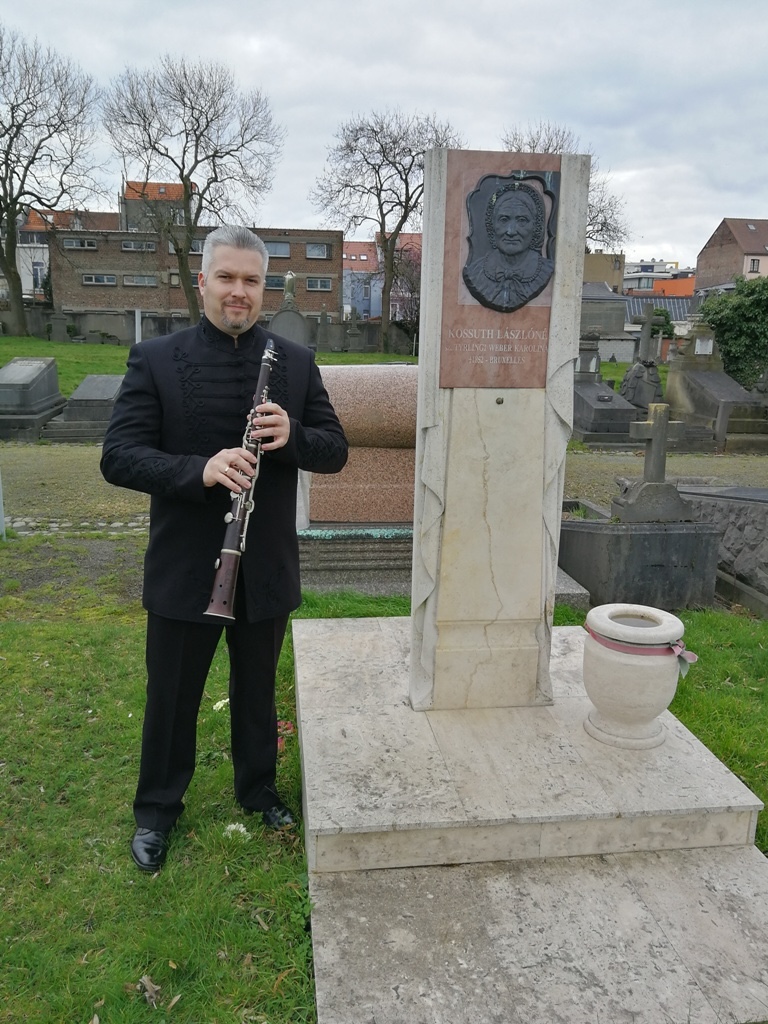
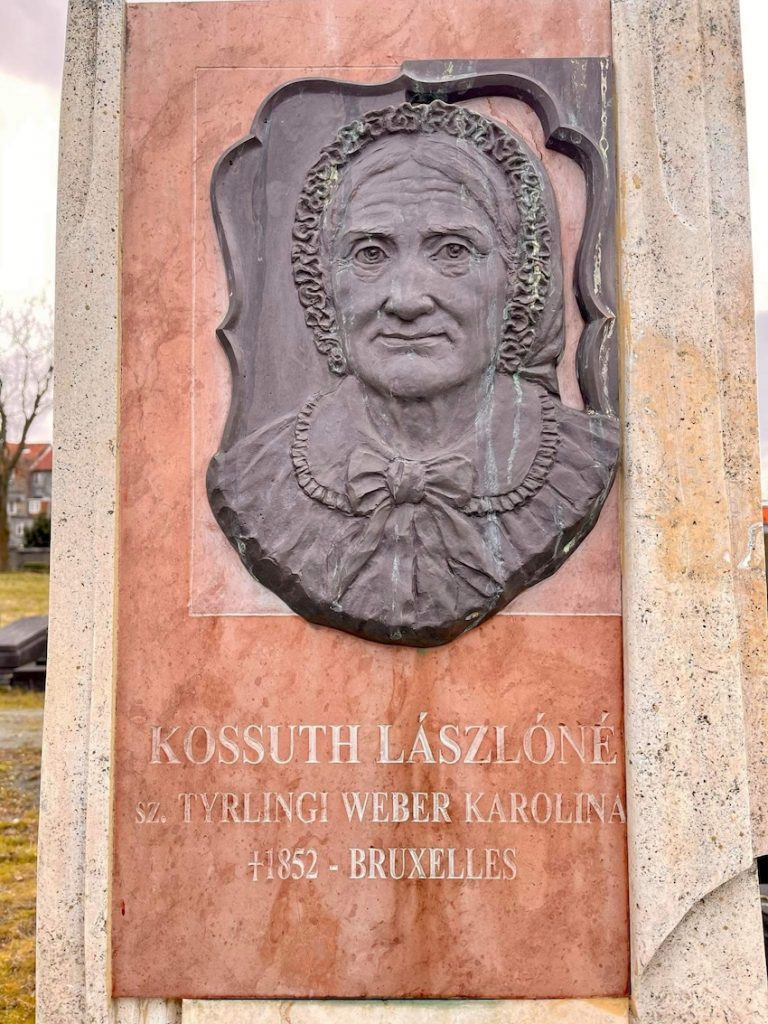
The Hungarian writer and freedom fighter Miklós Jósika (1794–1865) left Hungary in 1849 and spent 15 years of his life in Brussels, where he wrote 10 of his novels.
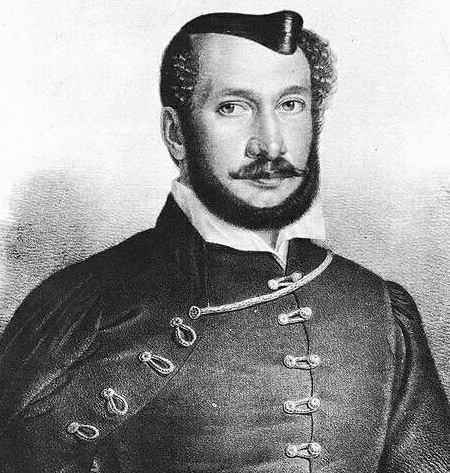
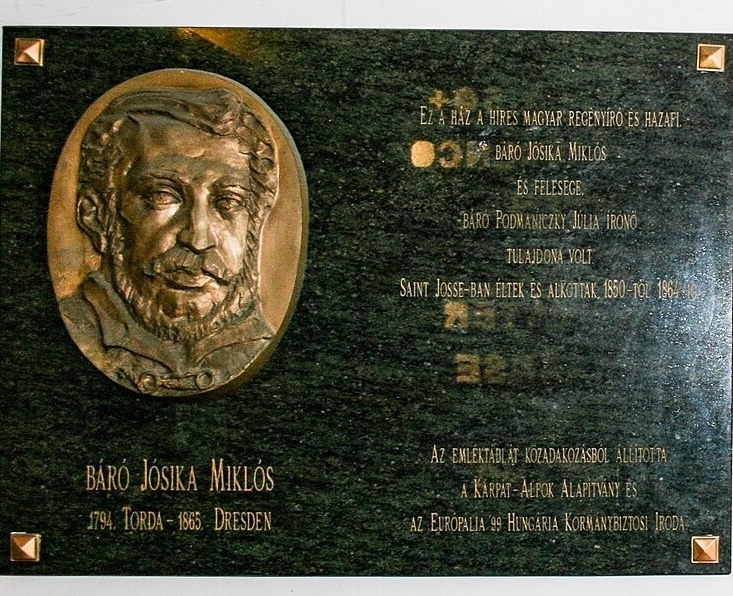
If you venture to the upper terrace, you will find a small exhibition about the “Children’s Trains” that took hundreds of Hungarian children to Belgium for recreation after the Great War of 1914–1918. It is just one episode in a long, shared history of mutual respect, solidarity, friendship, and love for freedom.
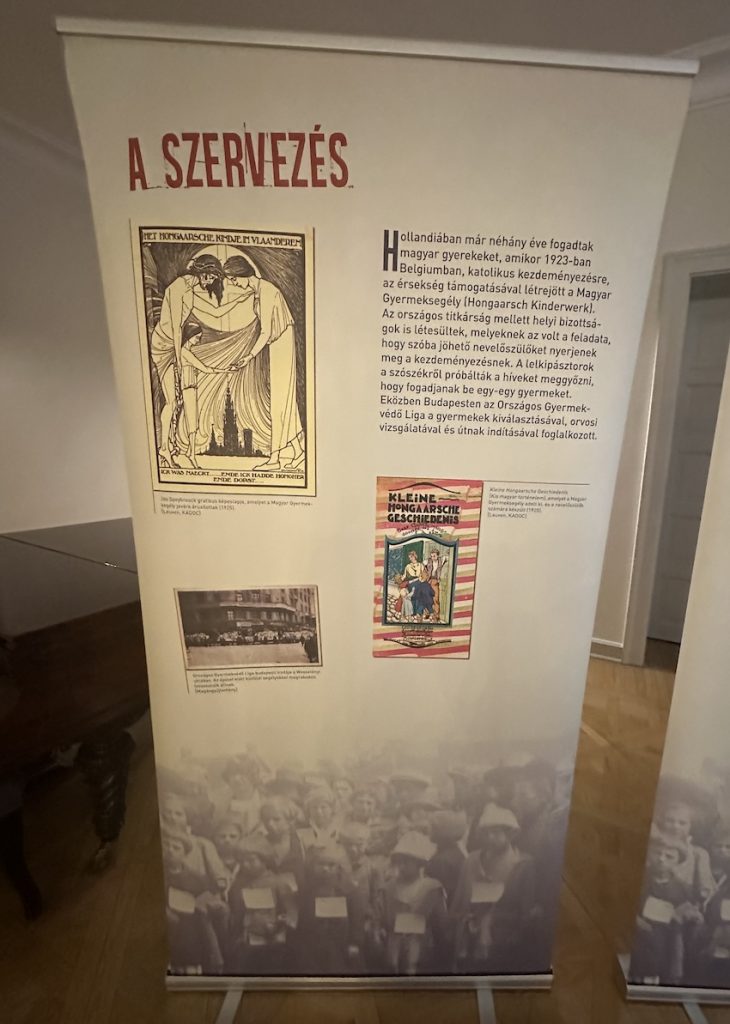
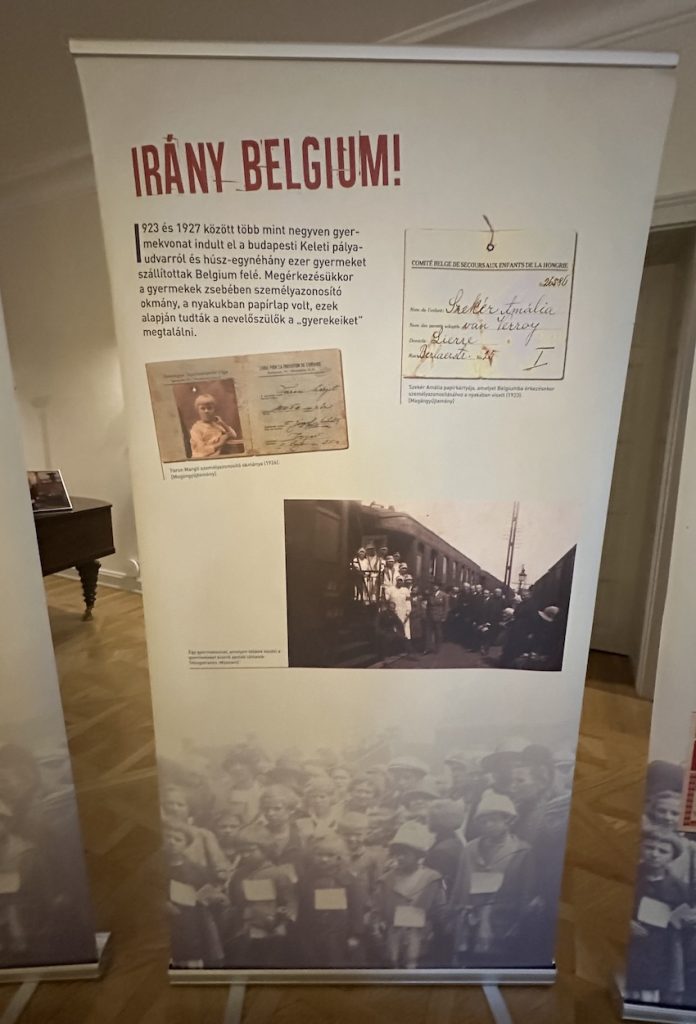
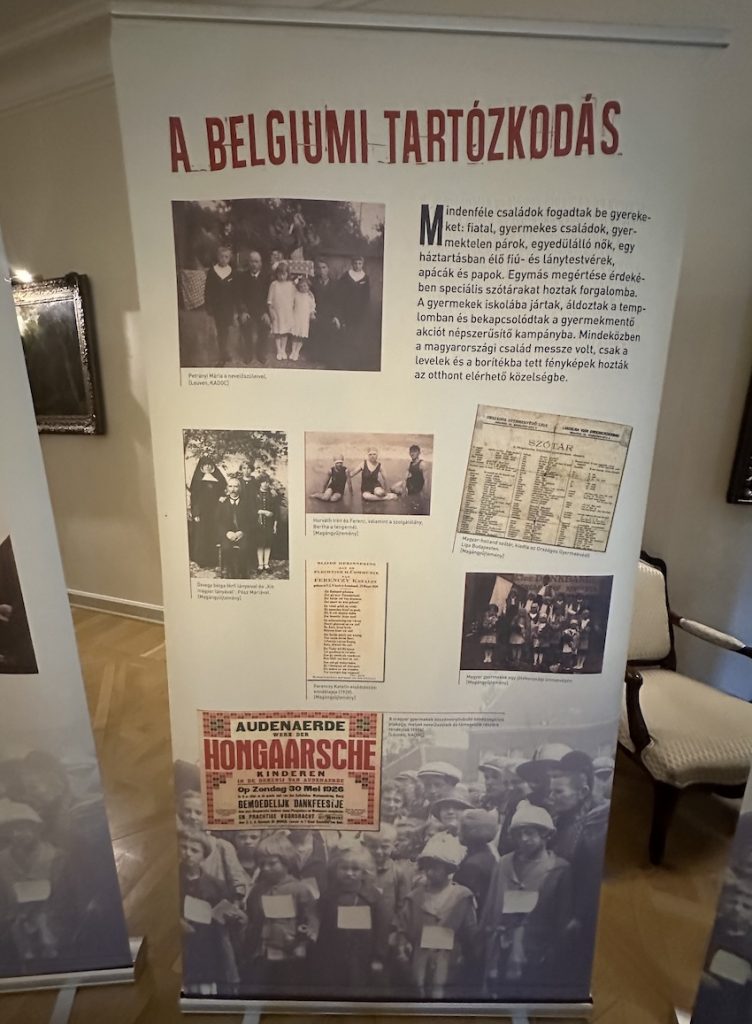
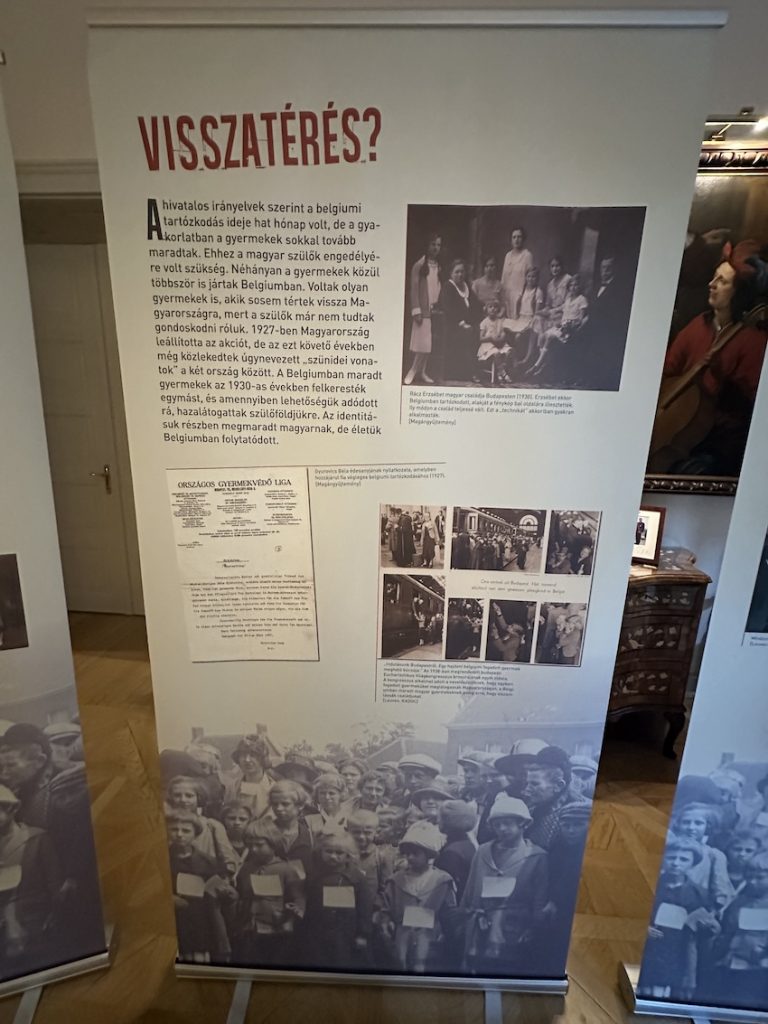
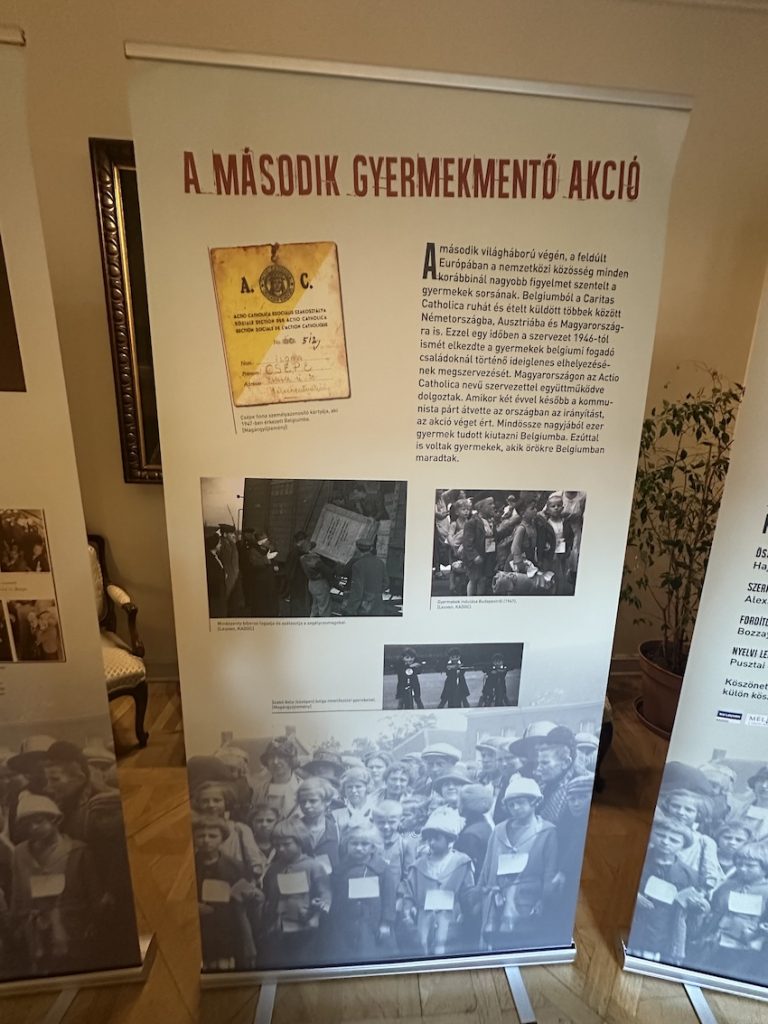
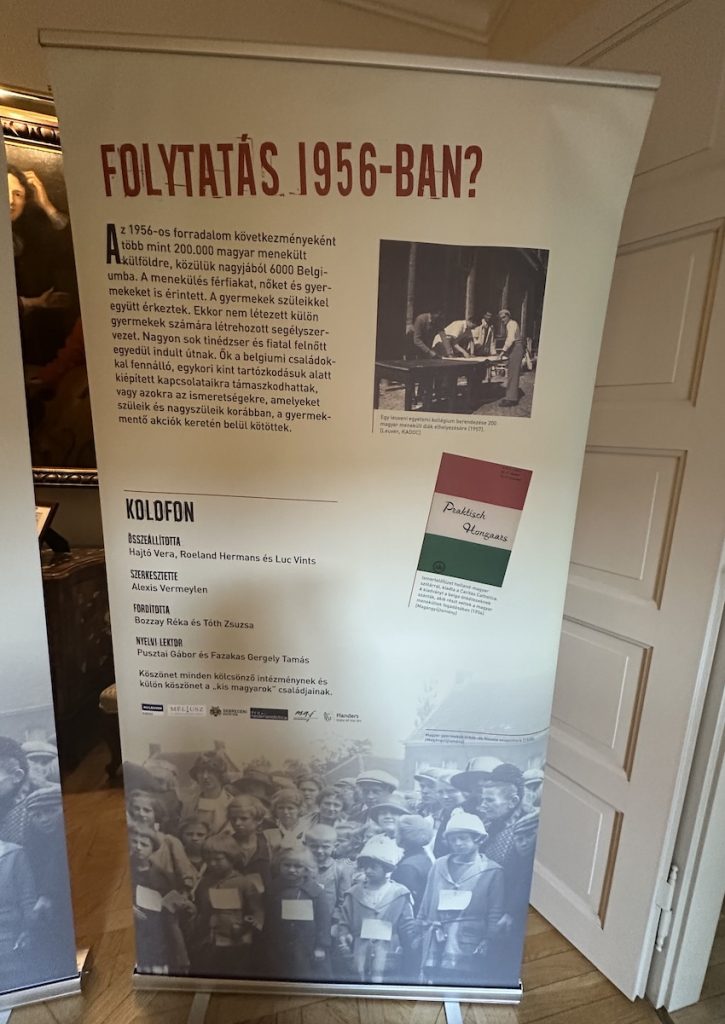
But as the Apostolic Nuncio, His Excellency Michael Wallace Banach reminded us this morning:“Freedom is not an end in itself, it’s an invitation to choose the right thing.” Choosing the right thing is something the world has been struggling with – today more so than in past decades.

Yesterday, His Majesty King Philippe expressed his great concern about the regression of international law and the grave dangers it entails. Less respect for international law means more unpredictability, more economic uncertainty, more violence, and more impunity. In this context, let me express my deepest solidarity with the civilian population of Gaza.
We are fortunate that Belgium and Hungary have been close partners in the European Union and allies in NATO for over 20 years. We benefit from the security, stability, and prosperity that the EU and NATO have provided continuously for over seven decades.
These organisations, which Belgium is proud to host in our often-criticised but beautiful capital, Brussels, require our daily care and efforts, because we cannot take them for granted. Defending our common security, freedom, and prosperity not only means investing more in defence. It also means staying committed to supporting Ukraine as long as it takes – to defend its sovereignty against horrific and daily waves of aggression, but also against attacks on our own values, security, and prosperity.
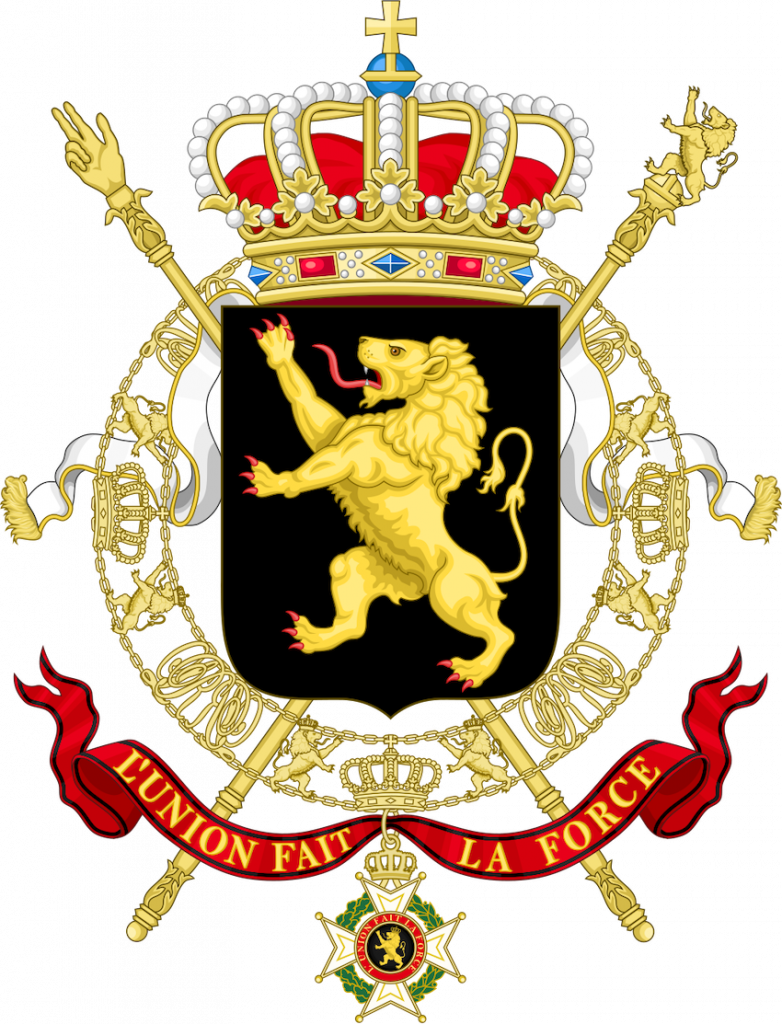
Defending national interests is necessary and legitimate, but it is our responsibility to see the broader picture. Unity is our strength, division is our weakness.
It is the national motto of Belgium: “L’union fait la force” (Unity makes strength).
Dear Guests,
Unity is also required as we face unprecedented global economic and competitive challenges, and looming trade wars. Fortunately, Belgian–Hungarian economic relations are built on solid ground and have remained robust over the past year. Our bilateral trade with Hungary amounted to over €7 billion last year. Belgium also remained the 12th largest foreign investor in Hungary.
This is only possible thanks to the hard work and innovative spirit of Belgian and Hungarian companies, many of which I had the honour to visit during the past year. But their success is also thanks to the EU’s single market, which has brought so many advantages to both our countries.
We have a clear common interest in continued cooperation to ensure a level playing field offering transparency, stability, and predictability to our companies, guaranteed by the rule of law.
Dear Friends,
It is a tremendous privilege to live in this beautiful country and in one of Europe’s most attractive and diverse capitals.
I would like to seize this opportunity to express my deepest thanks to our hosts – the Hungarian Government and the City of Budapest – and to you in particular, Minister János Bóka, for being here today, but also for your never-failing readiness to engage in constructive dialogue in a joint effort to find a common way to build a stronger European Union.
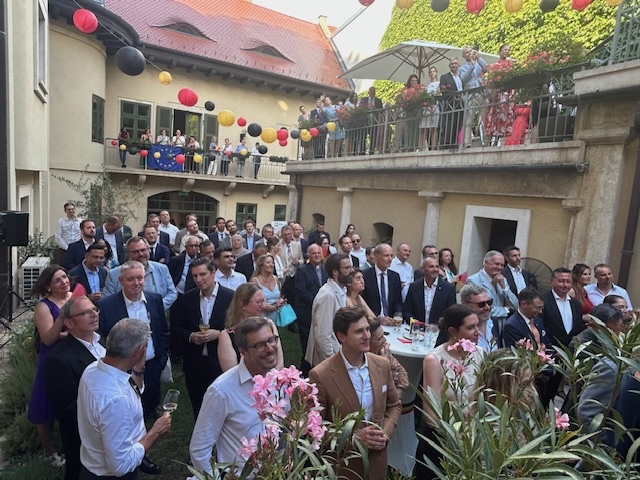
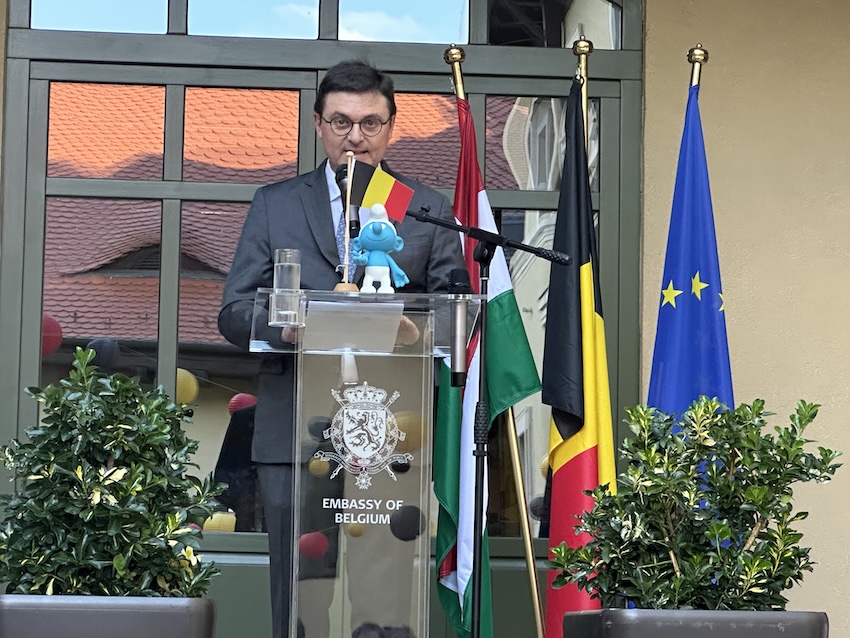
I also express my sincere gratitude to our numerous and valuable partners in business, civil society, culture, and academia, who have hosted my colleagues and myself on numerous occasions. Without your insights and generosity in sharing them, we would not be able to understand Hungary properly and to develop our relations effectively.
In particular, I would like to thank our numerous sponsors for making this reception possible with their generous contributions: K&H, Resilux, Beltaste, Three Corners Hotels & Resorts, BNP Paribas, Gosselin, Soudal, Port of Antwerp-Bruges, SIC Hungary, Puratos, Knauf, Borsodi, Belga Sörmester.
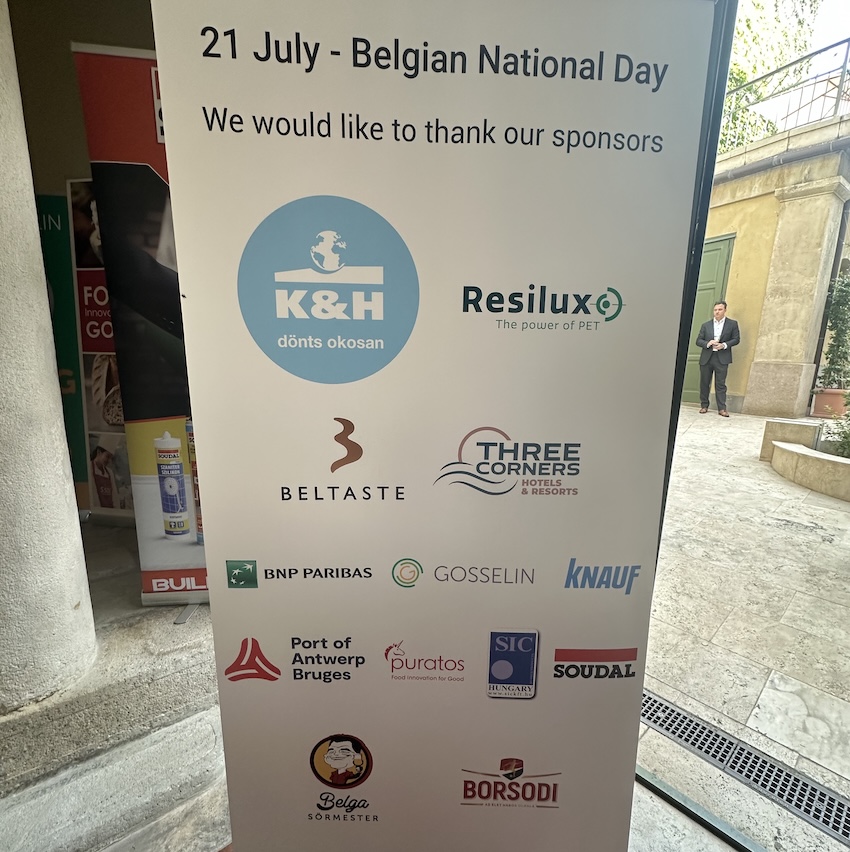
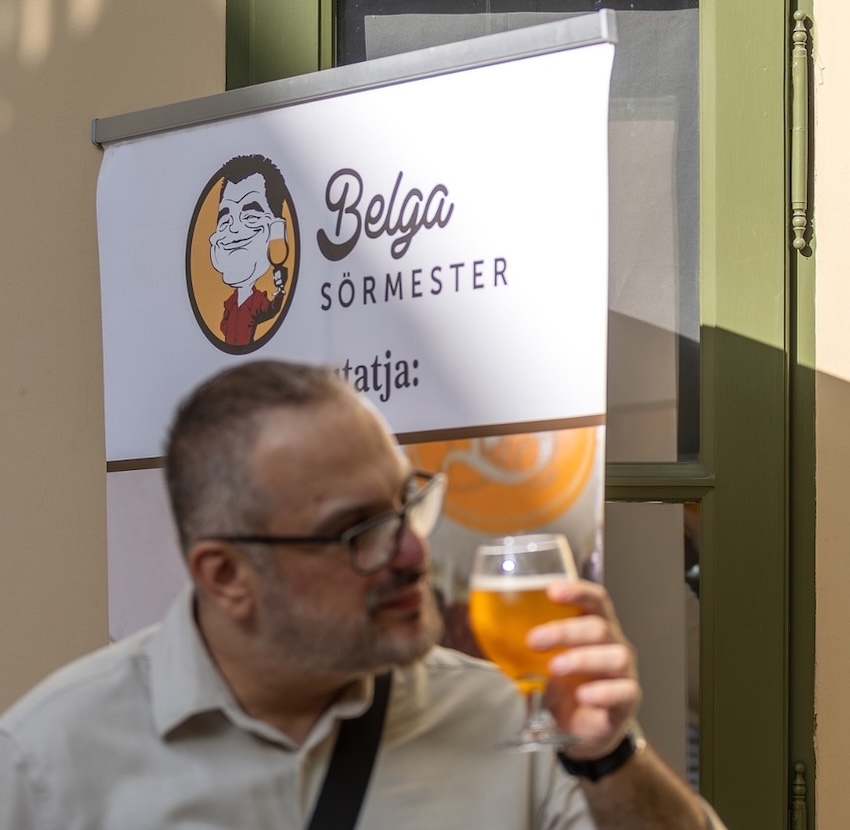
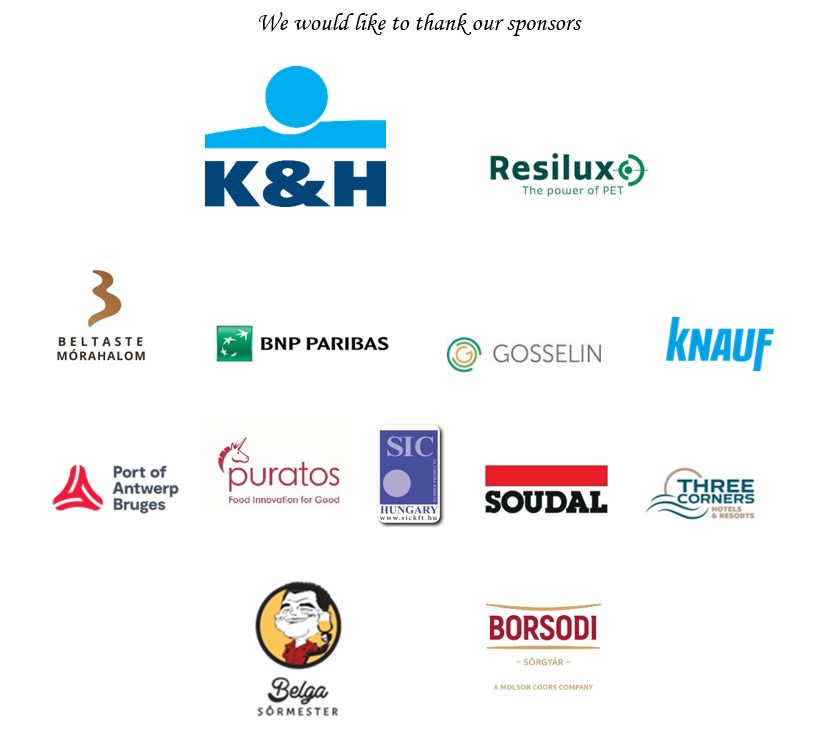
A big köszönöm (thank you) to my Embassy colleagues who not only organised this day but also ensured the smooth functioning of our Embassy every single day. Thank you, Anita, Kornélia, Anna, Etelka, Józsi, Zoltán, Ibolya, Ola, Siebe, and First Secretary Caroline Toussaint.
And of course, my deputy Raphaël Schröder, who is sadly leaving Hungary soon with his family at the end of his tour of duty, and whom we will dearly miss.

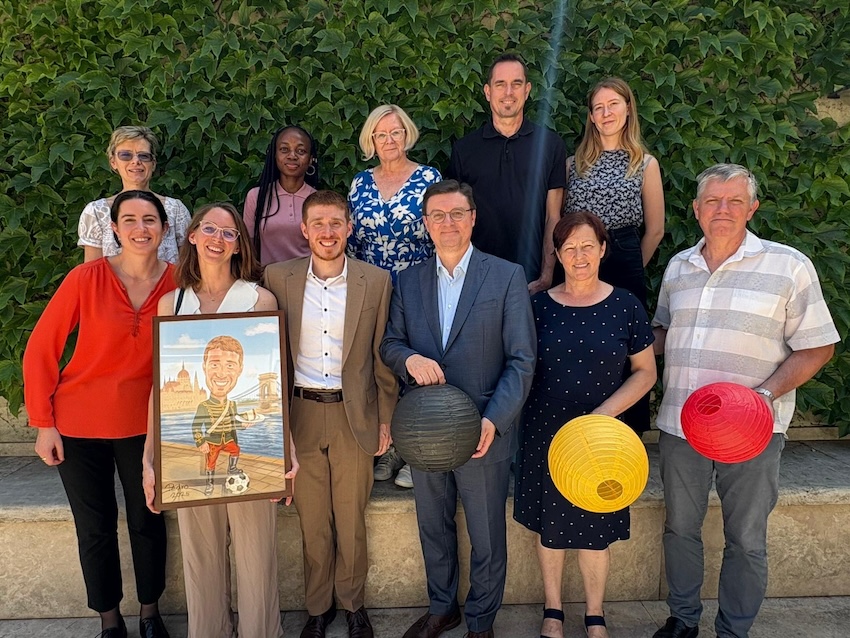
I also thank our Trade and Investment Counsellors for Flanders and Wallonia, the Belgian Business Club in Hungary – BELGABIZ, as well as the Flemish delegation and the Flemish-Dutch Cultural Centre in Debrecen for their dedicated work and support.
Finally, my thanks to all of you for your attention and your presence. Thank you for honouring us with your presence and I wish you a beautiful evening with a glass of cold Belgian beer. Egészségünkre! Cheers!”
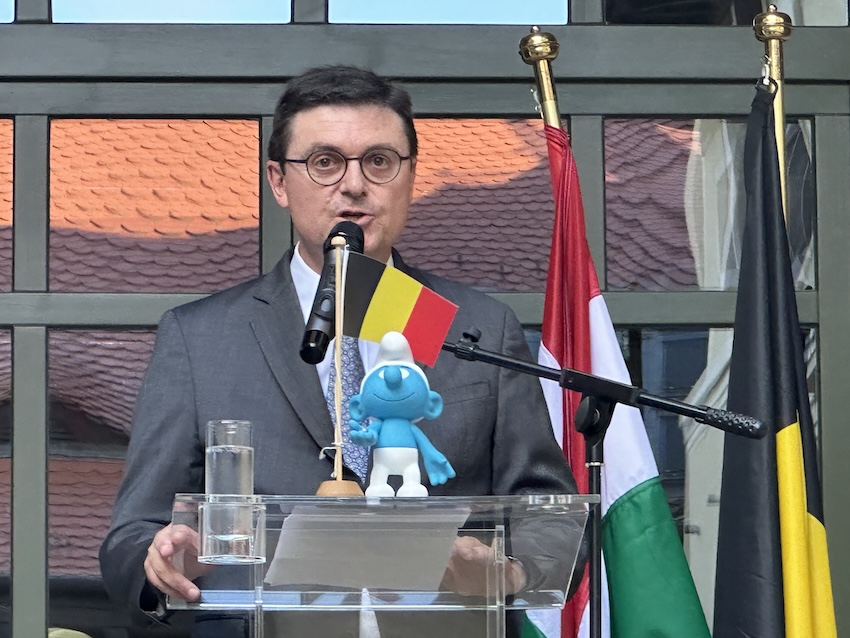

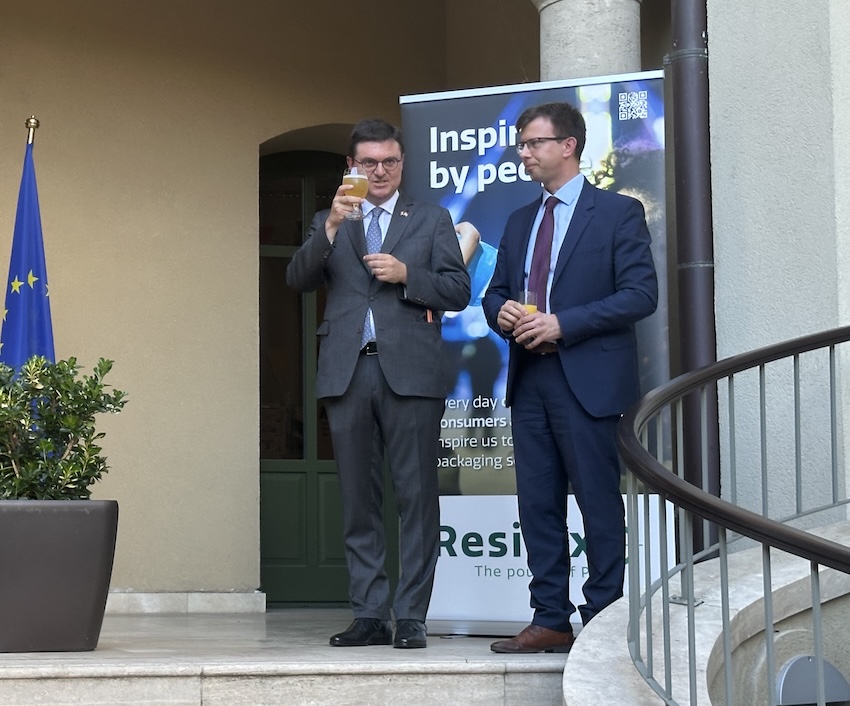
Remarks by Mr. János Bóka, Minister for European Union Affairs of Hungary
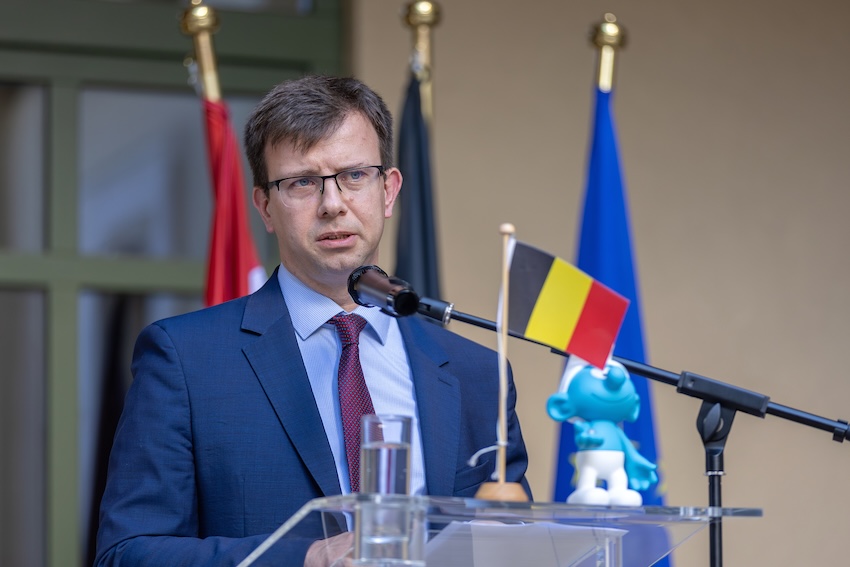
On behalf of the Hungarian Government, Minister Bóka conveyed his best wishes and congratulations to the Kingdom of Belgium on the occasion of its National Day.
Reflecting his personal connection to Belgium, the Minister described the country as a “second family”. This sentiment, he explained, goes beyond his official capacity as Minister for European Union Affairs. Having spent a significant part of his life in Belgium – indeed, more time than with his own family – his ties run deep. He recalled that just weeks after his wedding, he and his wife relocated to Brussels, where he began working at the European Parliament. The first five years of their marriage were spent in Belgium, and their two children were born there. It was in Belgium that he embraced the French language and developed a lasting appreciation for bandes dessinées, the nation’s beloved comic art tradition.
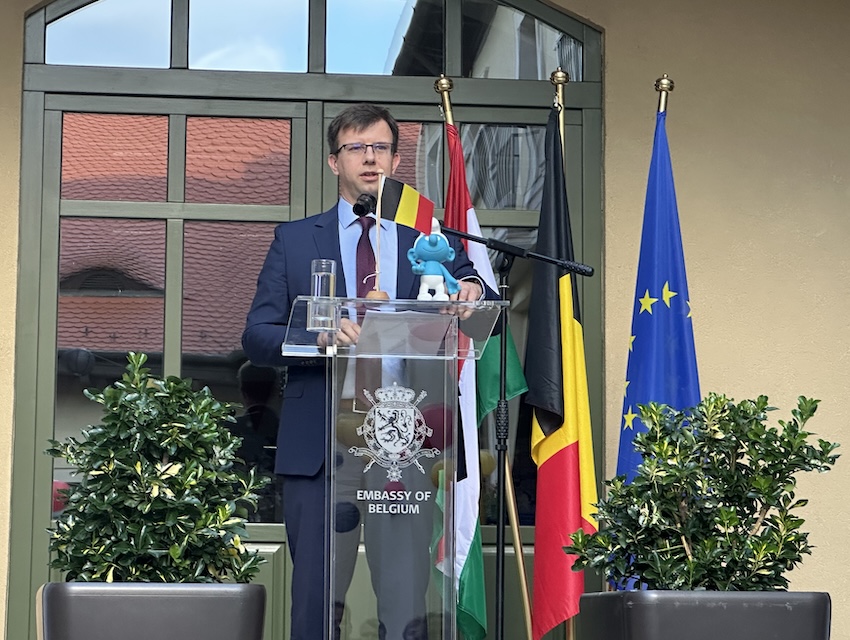
Minister Bóka then turned to shared values, underscoring that freedom is not simply the absence of restrictions, but a principle to be treasured, safeguarded, and embodied. “The homeland is not merely the place where we live; it is an idea continuously renewed by each generation, built upon our common history, culture, and traditions,” he said.
He went on to emphasize that Europe itself is more than a geographic space – it is a shared destiny that is never complete, but is constantly evolving and shaped through the joint efforts of its peoples.
Highlighting the close bonds between the two countries, he noted that Hungary and Belgium stand as steadfast allies in NATO and strategic partners in the European Union.
Concluding his remarks, Minister Bóka acknowledged that Europe faces challenges unprecedented in scale and complexity. Yet, he expressed confidence that the future of Europe – our common European future – will be forged together, through solidarity and shared resolve.
The Minister’s words were followed by a heartfelt toast to Belgium.
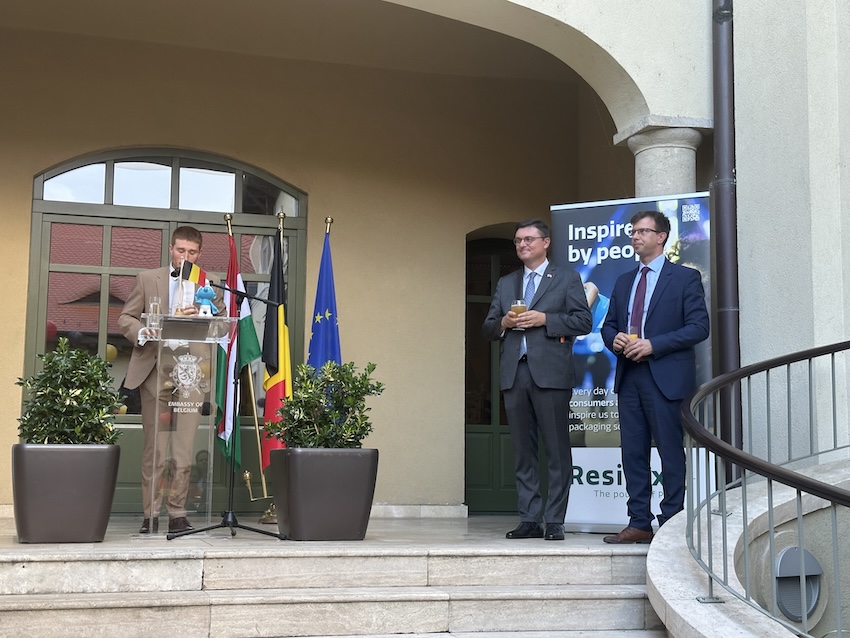
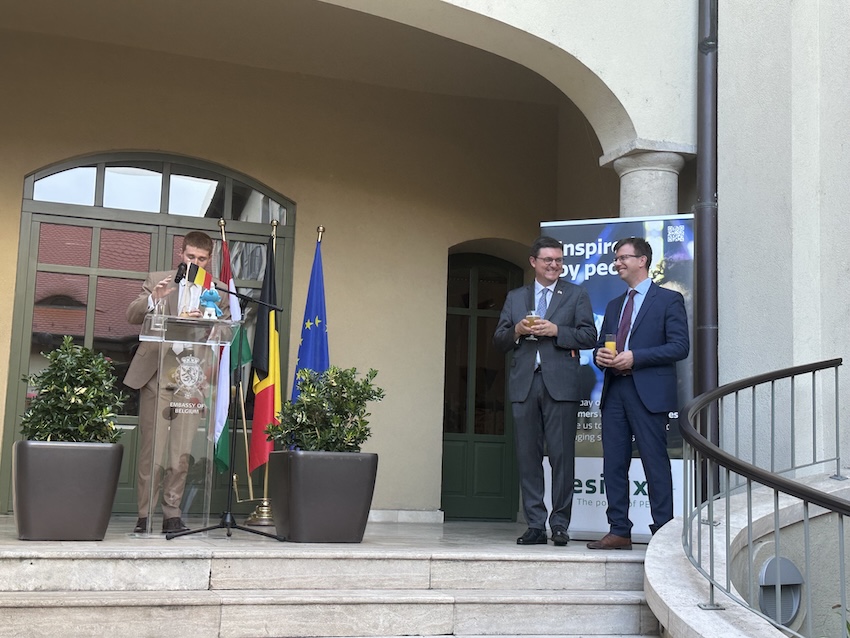
As a touching symbol and reminder of Belgium’s special place in his life, Ambassador Jeroen Vergeylen presented Minister Bóka with a blue Smurf figurine – representing both personal and friendly ties between the two nations.
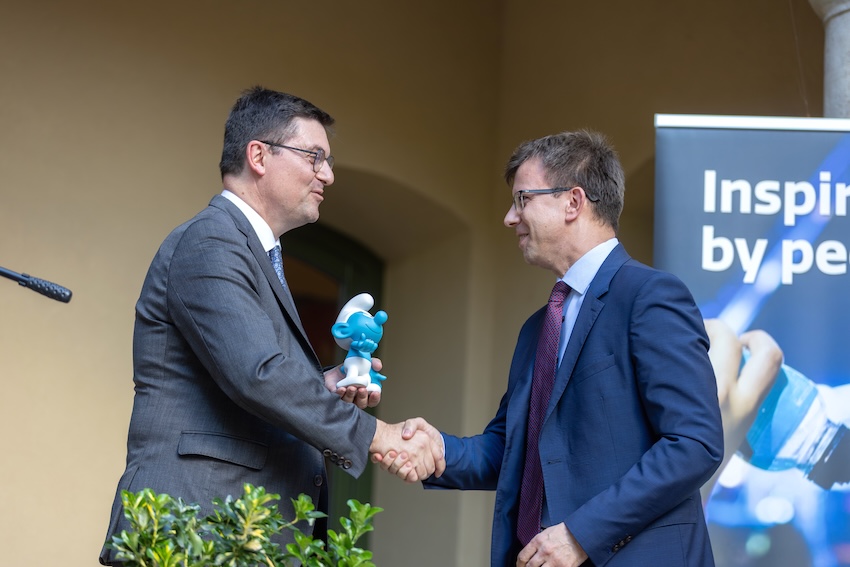
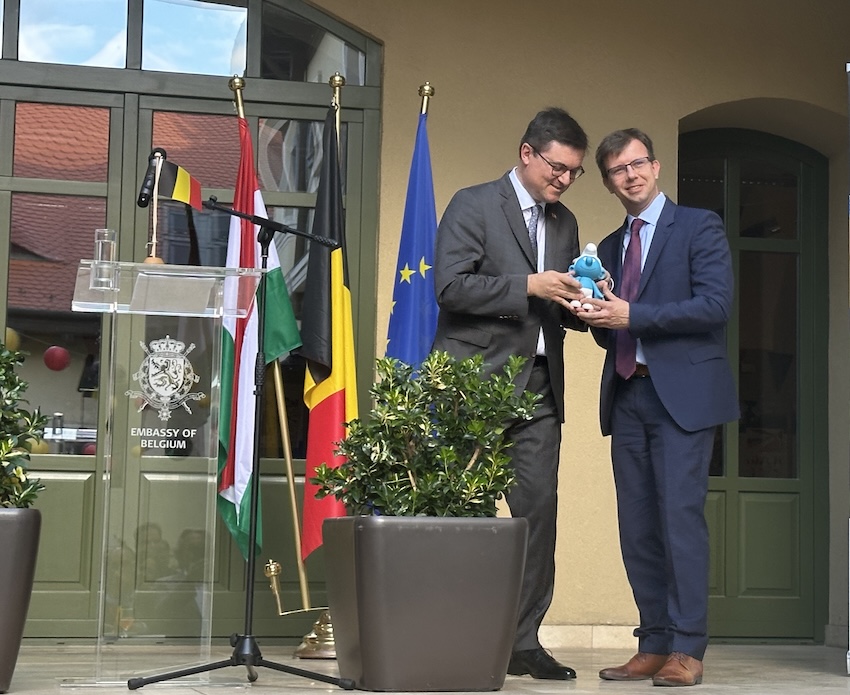
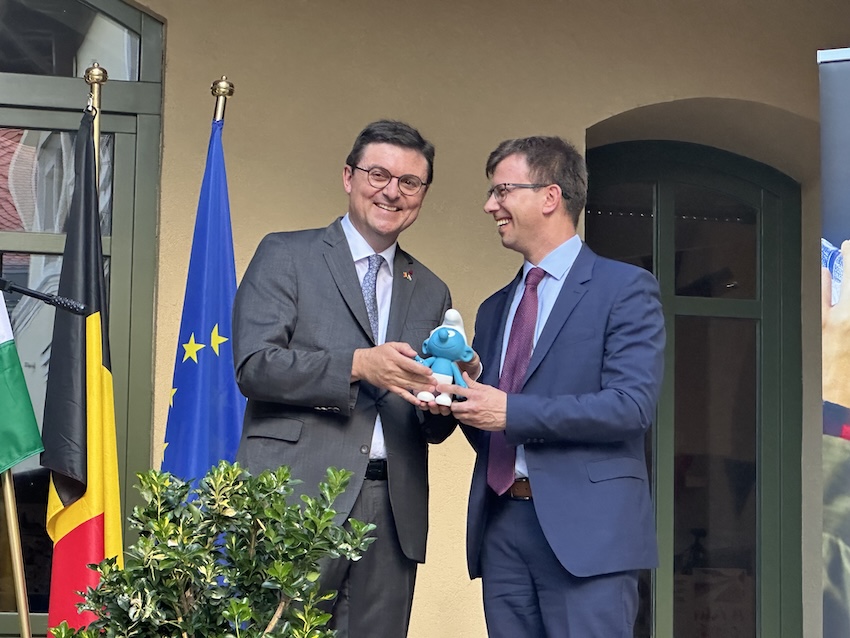
The official proceedings were followed by a reception, in warm summer weather, featuring Belgium’s renowned specialties alongside other exquisite delicacies: authentic Belgian beer, crispy golden French fries, and rich, decadent chocolate ice cream. Invitees enjoyed these iconic flavours as part of Belgium’s culinary heritage in a happy and convivial atmosphere.
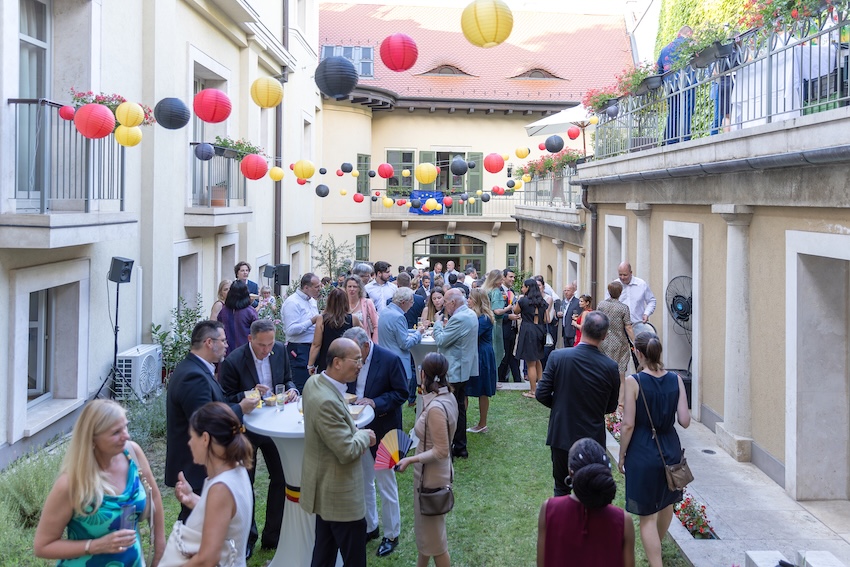
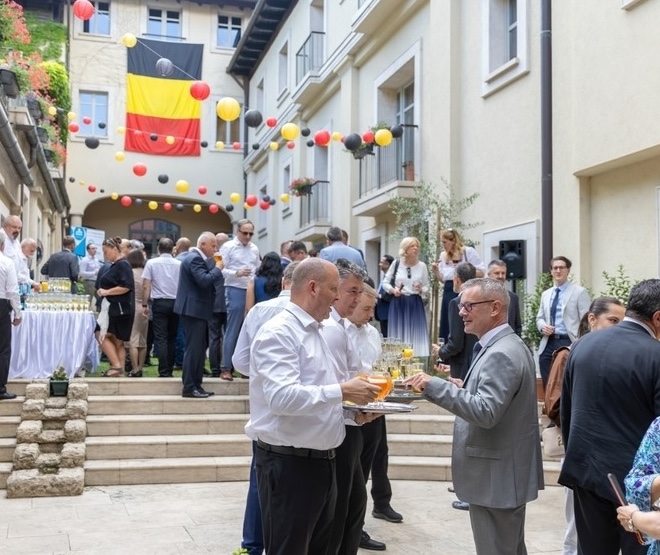
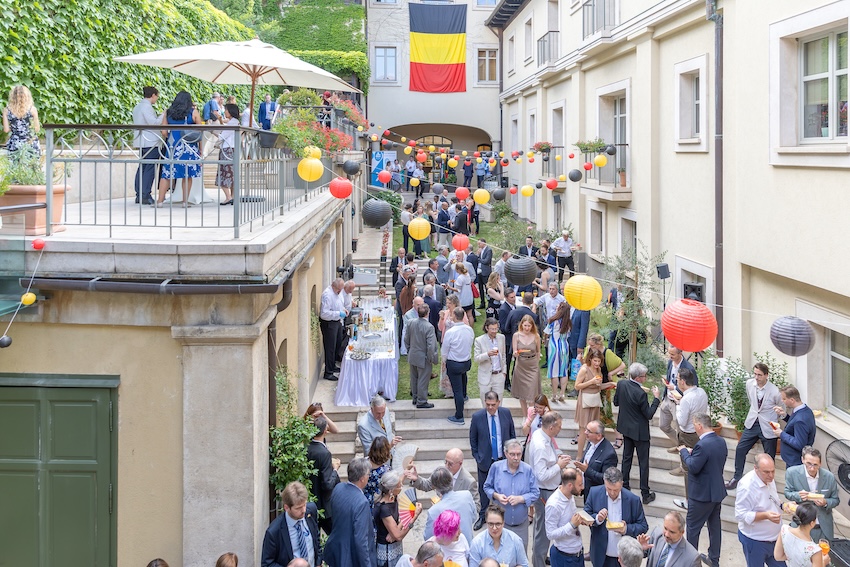
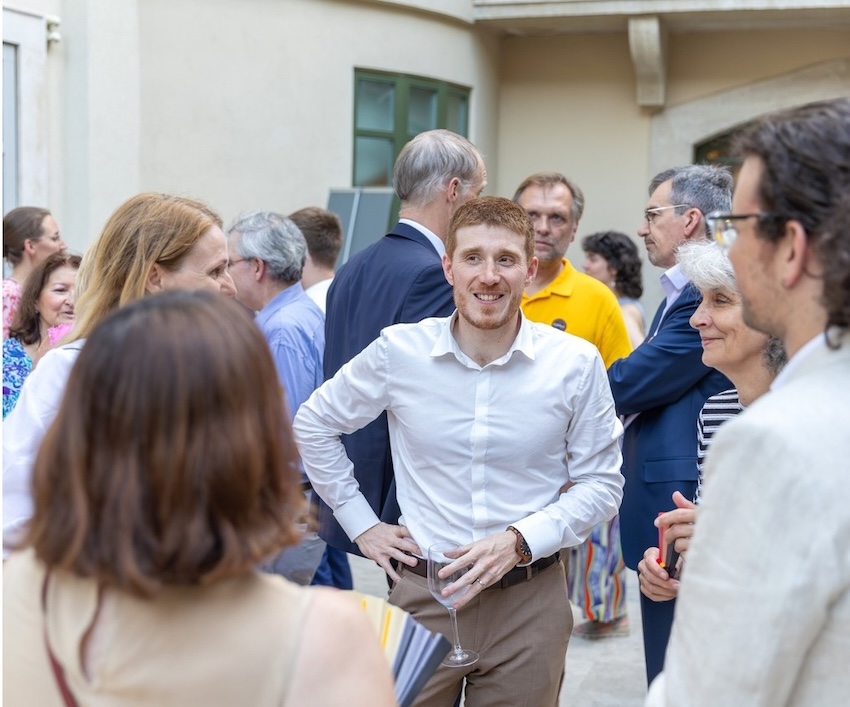

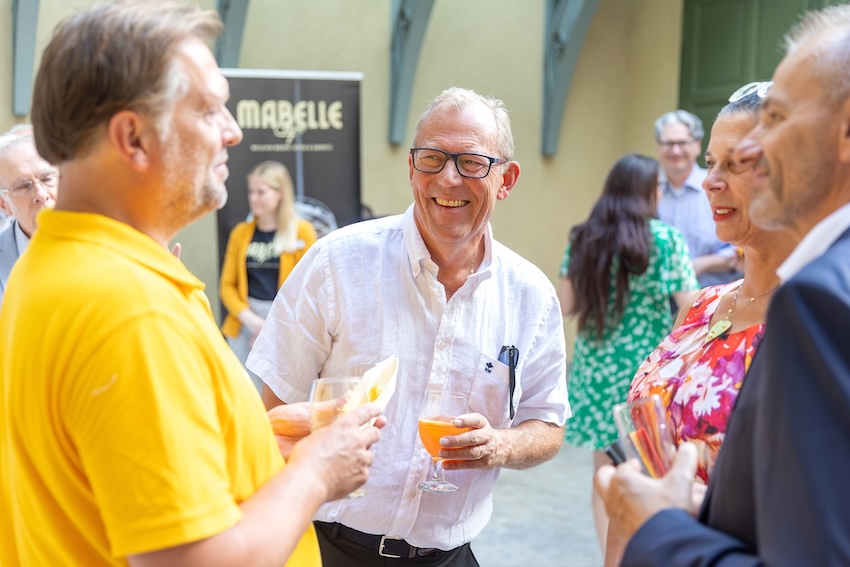
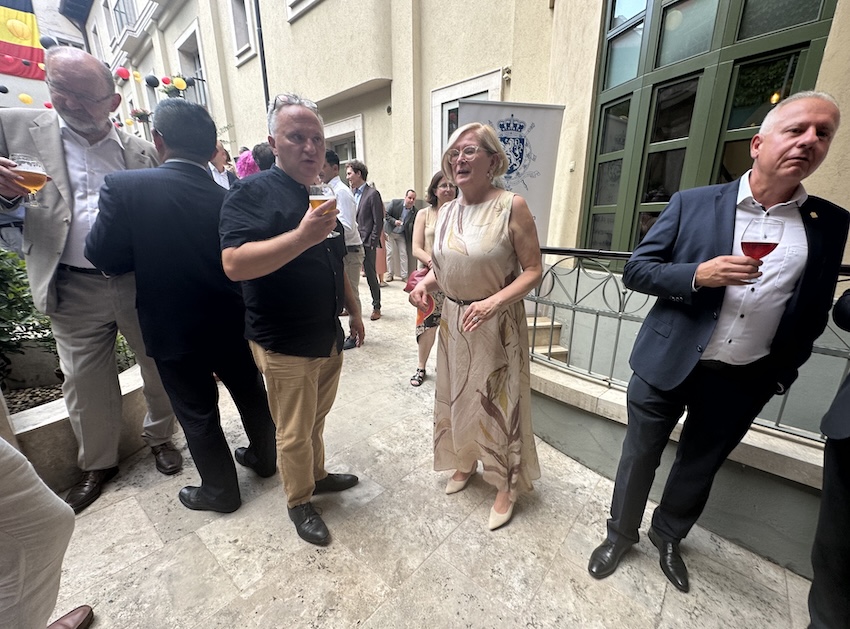
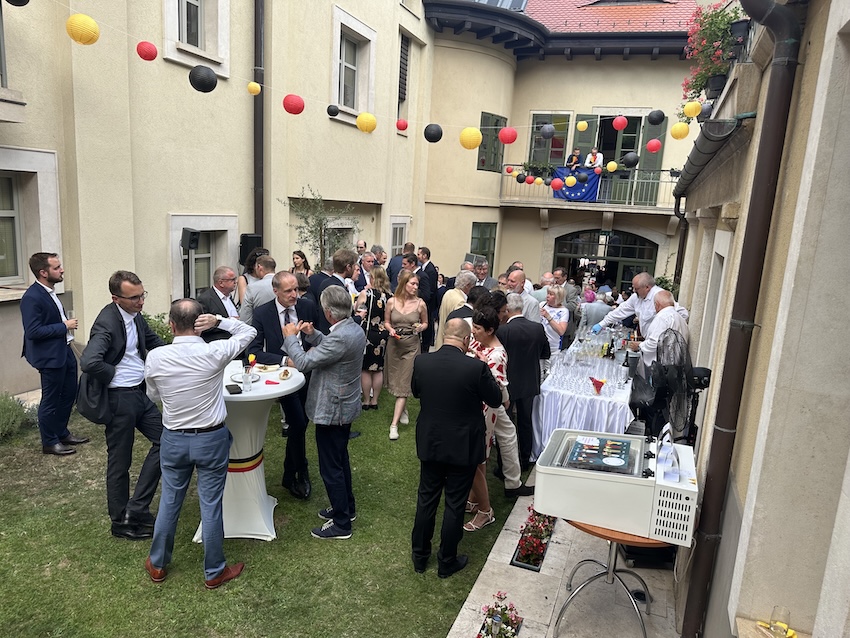
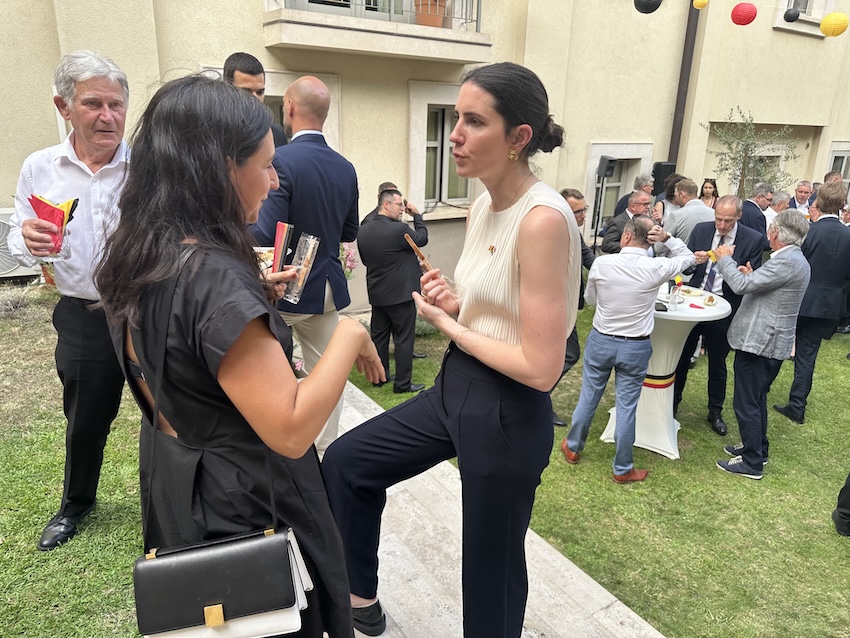
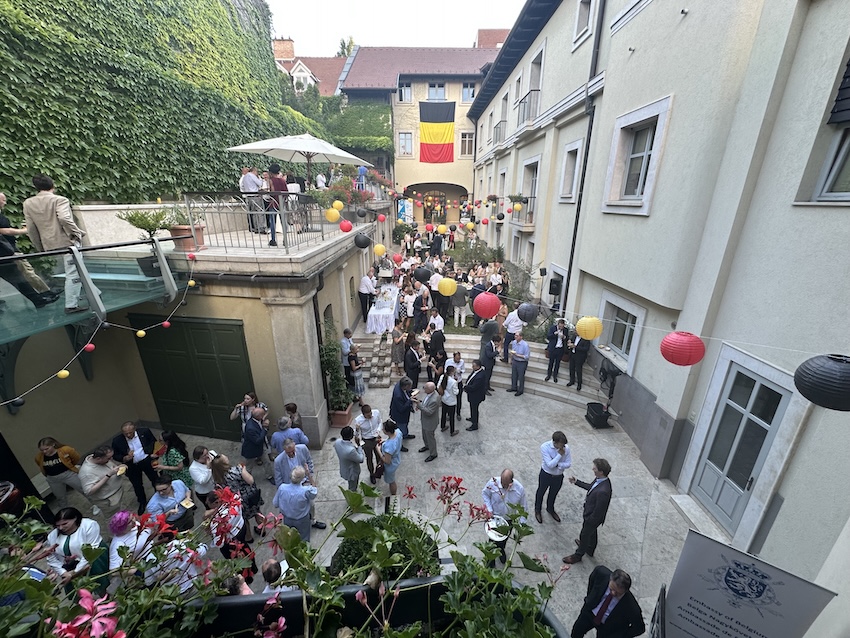

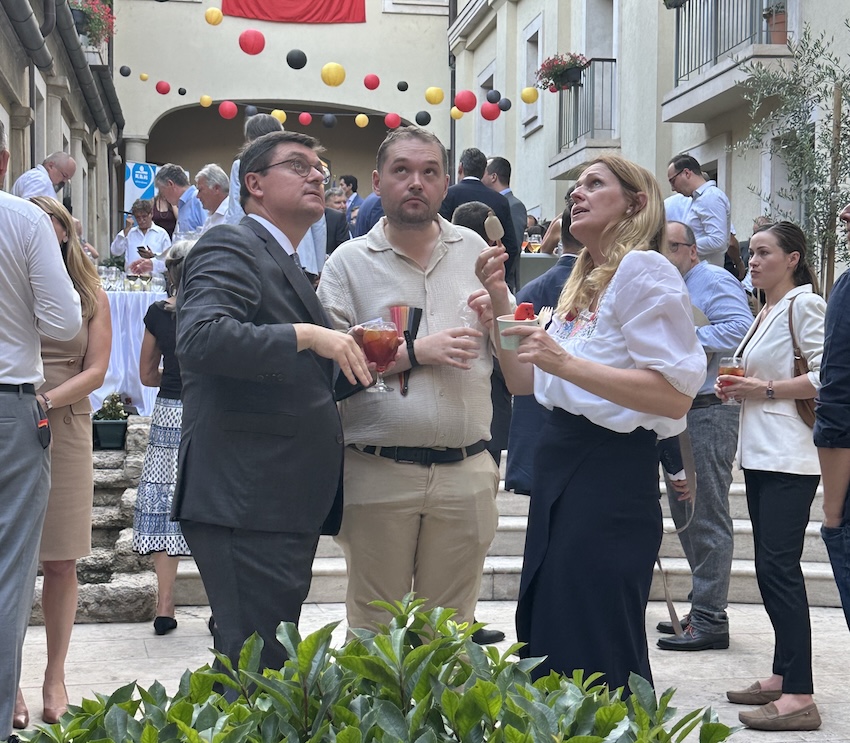
Exhibition of Belgian Comics
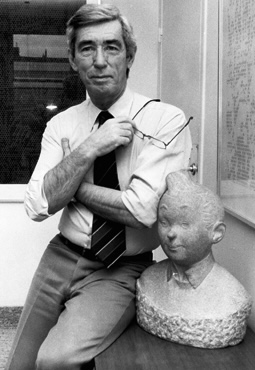
After the official speeches, guests were invited to explore the exhibition “A Comic Strip Tour of Belgium”, a vibrant showcase of the nation’s world-famous comic culture. Belgium’s comic book heritage has left an indelible mark on global popular culture.
The 20th century was a golden era with artists such as Hergé (1907–1983), the creator of Tintin, his most famous and significant work, which he wrote and illustrated from 1929 until his death, and Peyo, the father of the Smurfs, bringing beloved characters to life.
These icons transcended the boundaries of the book, captivating audiences through animation, cinema, radio, and merchandising.
The exhibition “A Century of Belgian Comics” narrated this rich cultural story through immersive visuals and engaging displays for all ages, affirming Belgium’s reputation as Europe’s comic book capital.
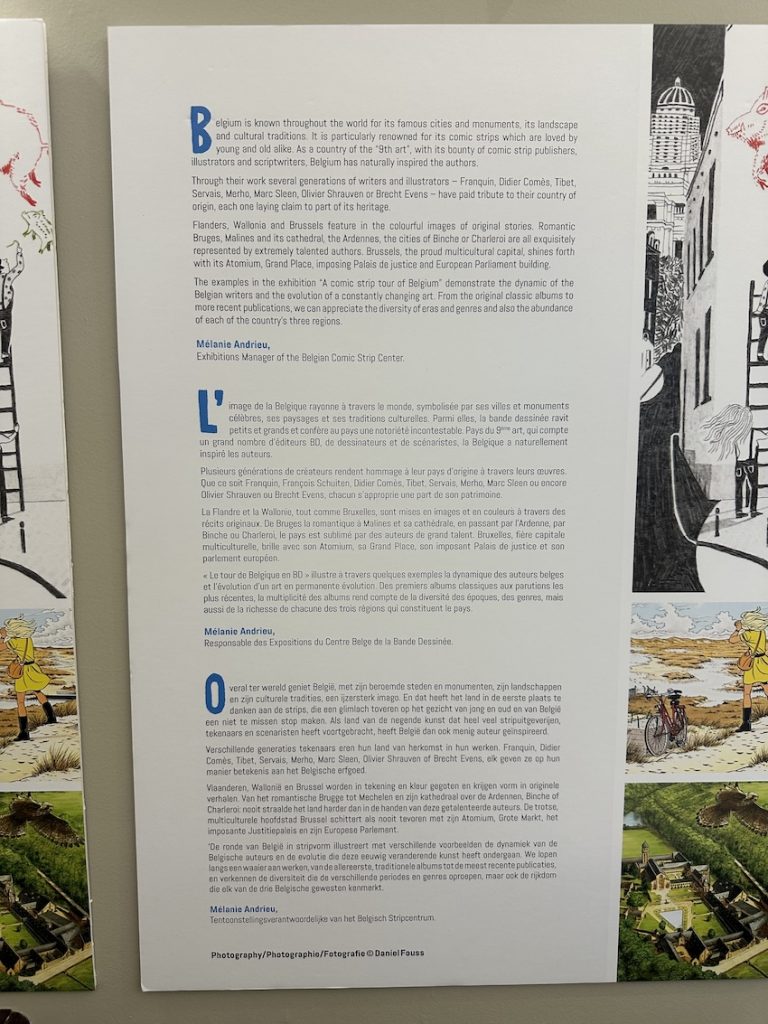
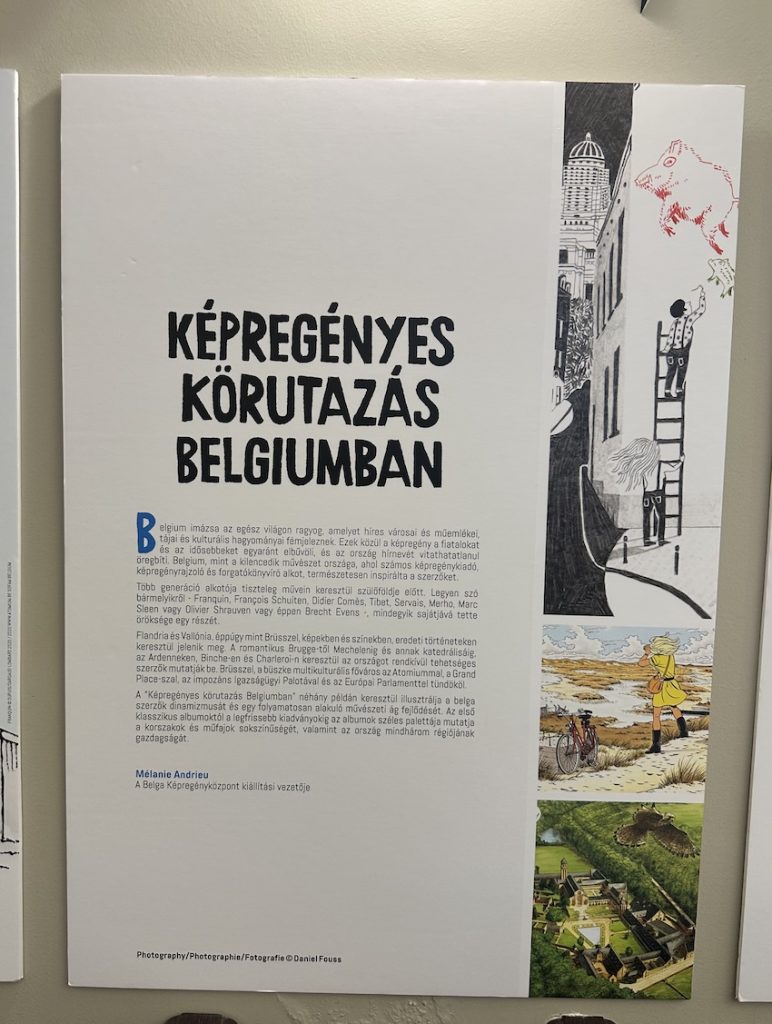
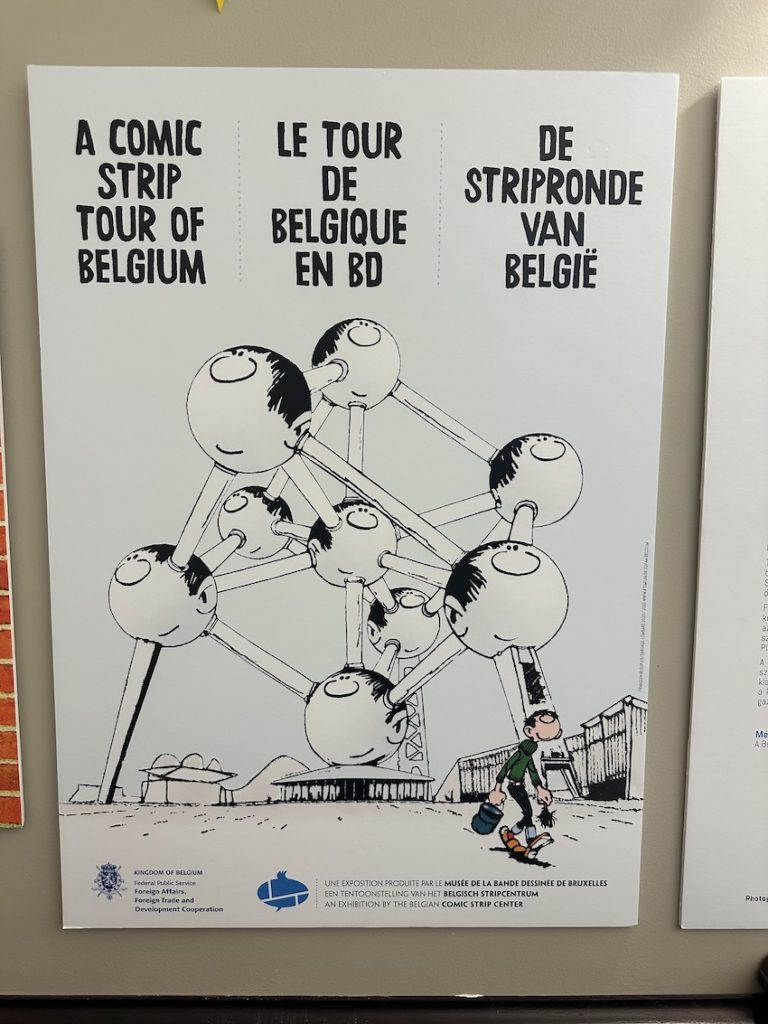
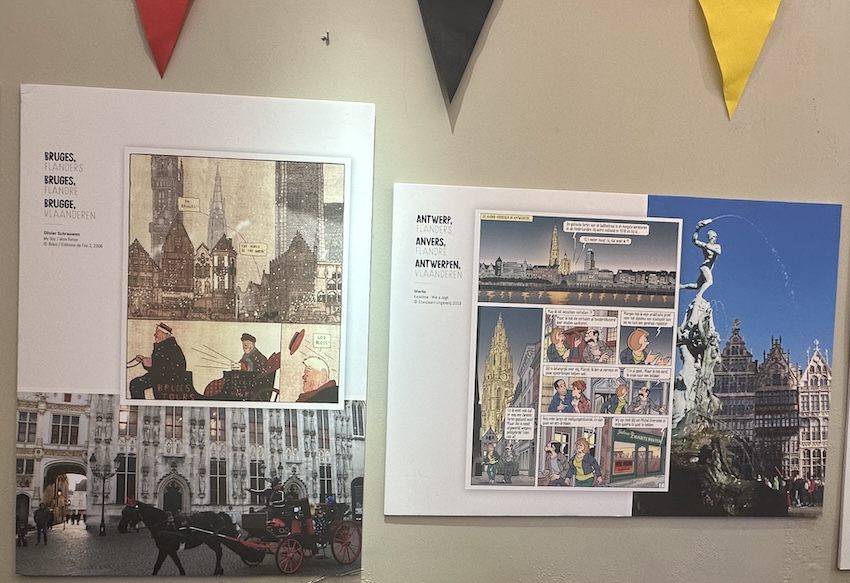
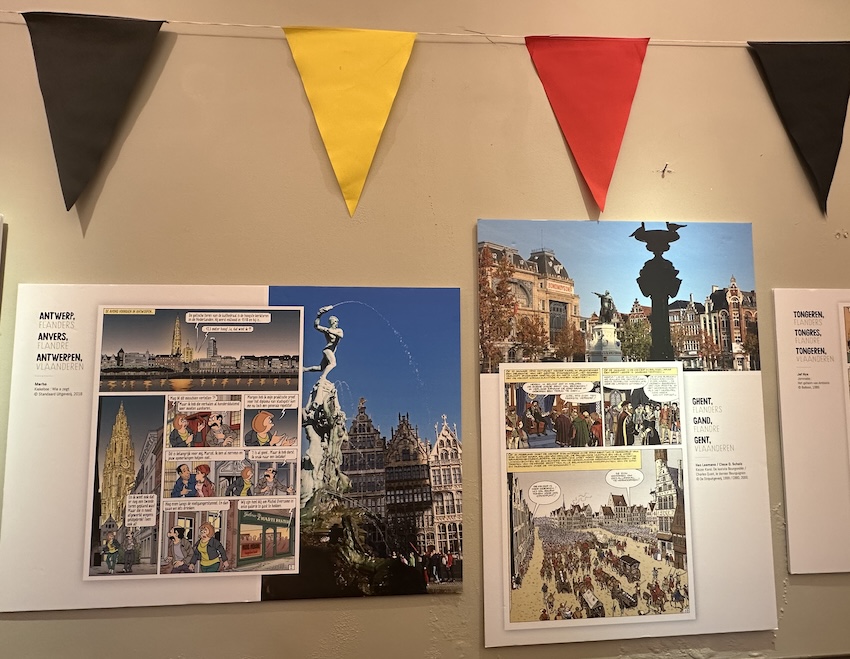
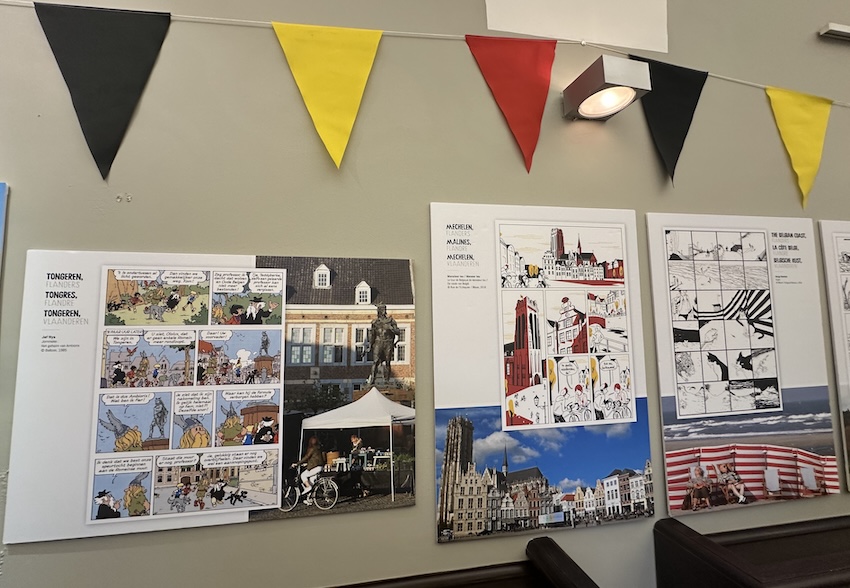
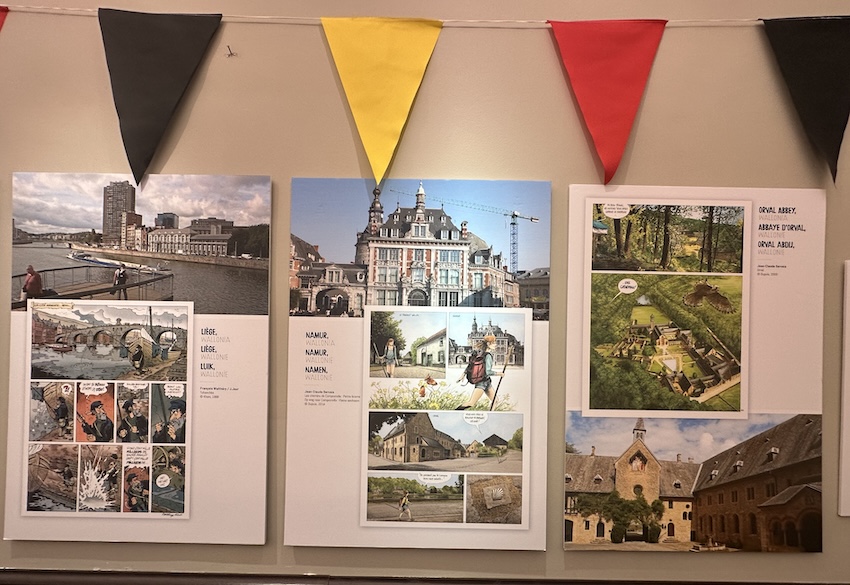
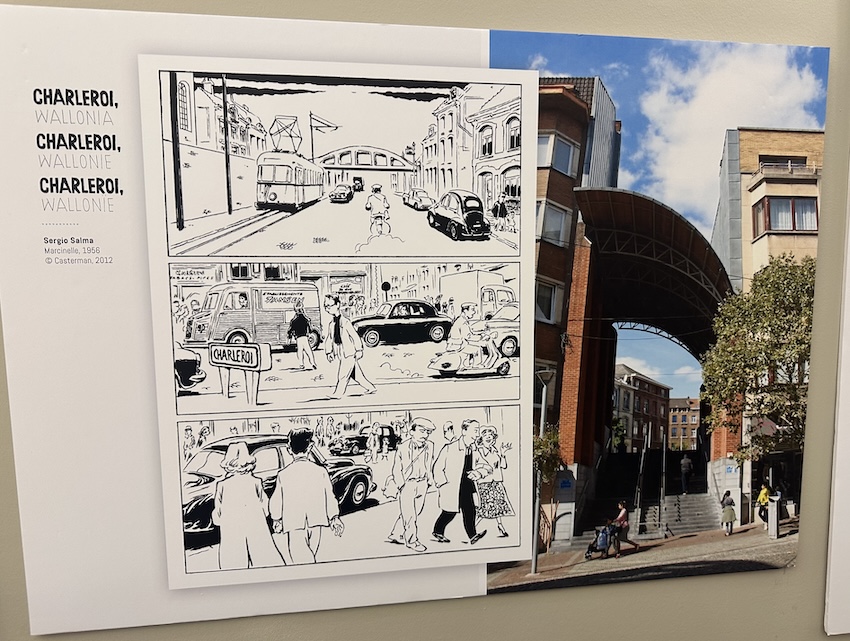
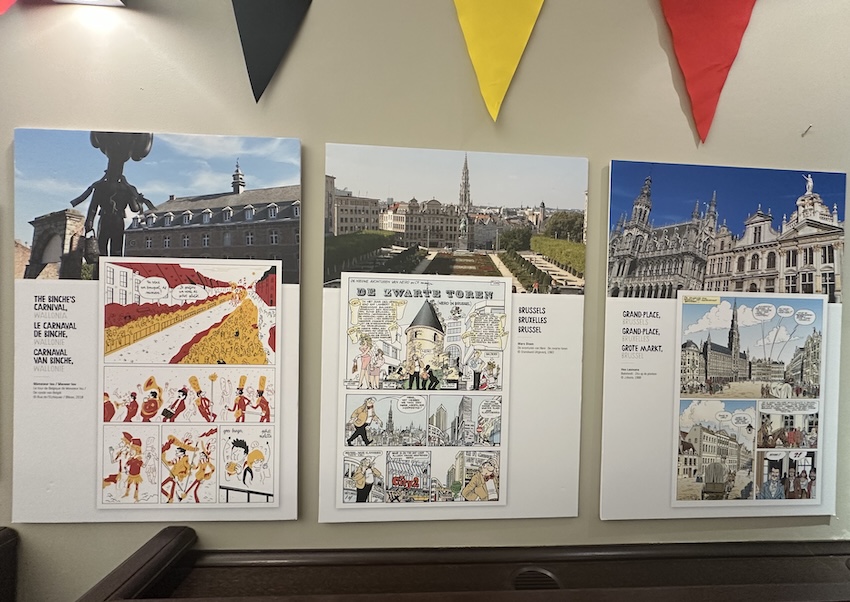
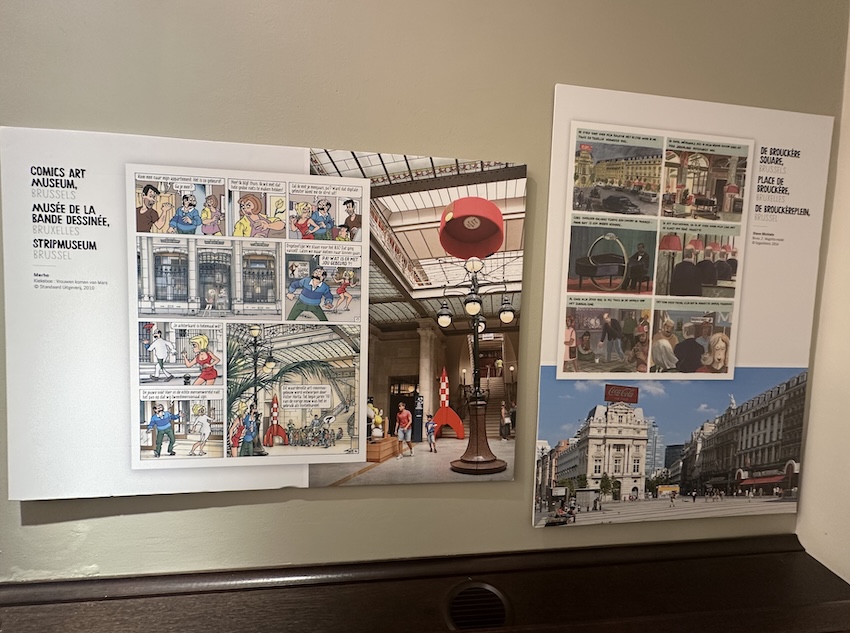
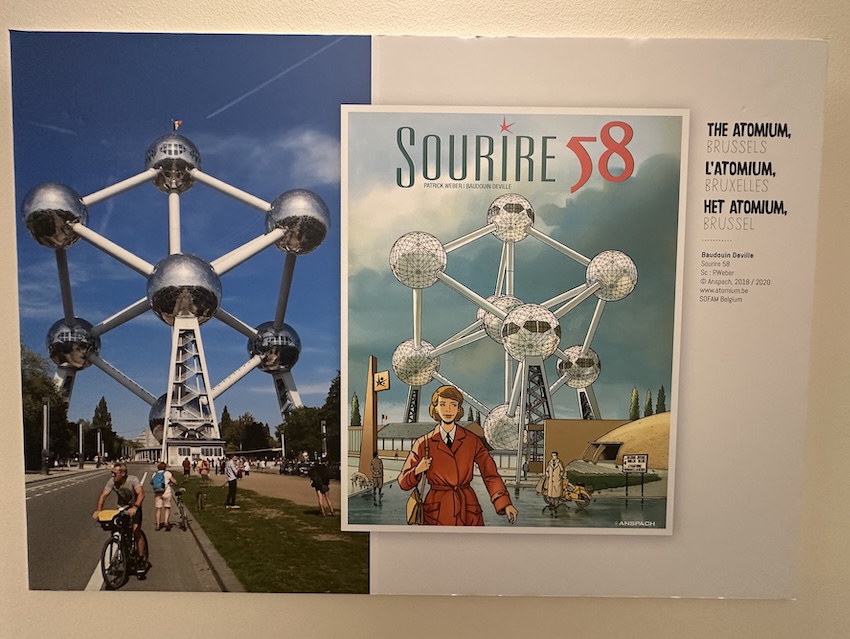
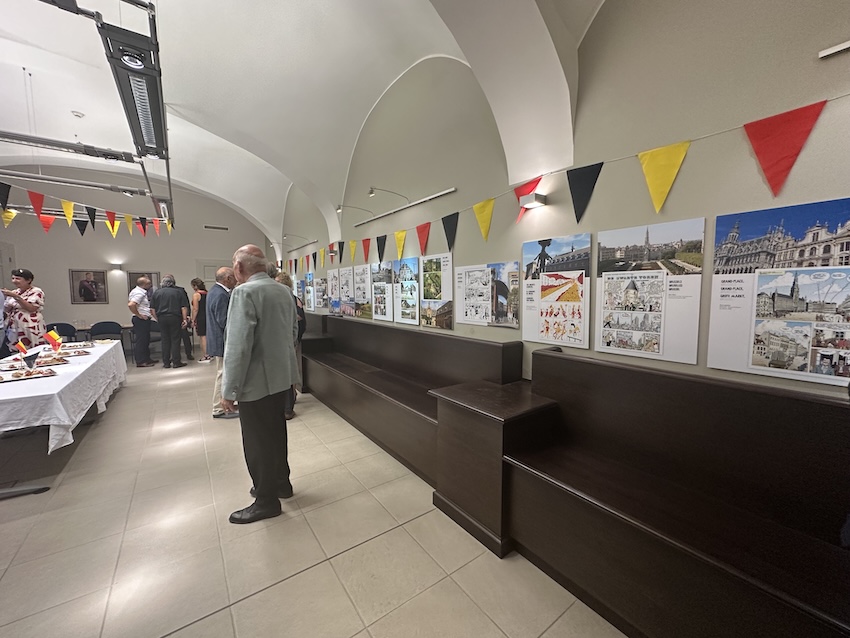
The new Belgian passports – emblazoned with Tintin and the Smurfs – are a playful expression of national pride and have been hailed as “the coolest in the world”.
International Beer Day – Celebrating Belgian Brewing Excellence
The International Beer Day, observed annually on the first Friday of August – falling on 1 August in 2025 – is a special celebration in Belgium. Launched in 2007 in Santa Cruz, California, this event has spread to over 80 countries, honouring the craft and community of beer-making.
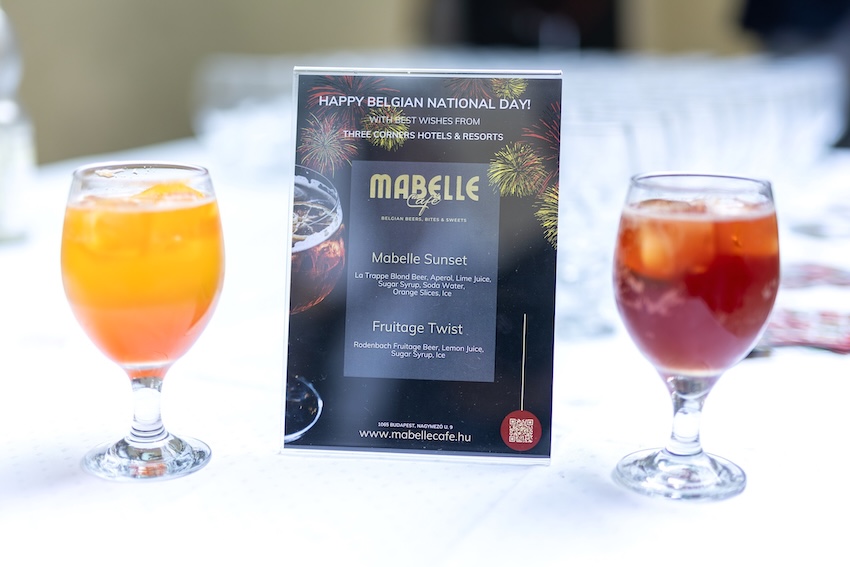

Belgium’s brewing tradition, dating back to the 12th century, is as diverse as it is unique. With over 235 breweries and nearly 1,500 varieties, Belgium boasts an extraordinary range of fermentation techniques. In recognition of its cultural and historical significance, UNESCO inscribed Belgian beer culture on its Intangible Cultural Heritage of Humanity list.
From the deep, contemplative flavours of Trappist ales to the crisp refreshment of golden blondes and fruit beers, Belgian beer is more than just a drink – it is an art form, a tradition, and a source of national pride. Guests at the reception were invited to raise a glass and savour some of Belgium’s finest beers, perfectly complementing the evening’s warm hospitality and festive spirit.


Belgian Fries – Golden, Crispy, and Culturally Iconic
Authentic Belgian fries – crispy, golden, and served with rich, flavourful sauces – remain a beloved staple, never missing from the nation’s celebrations. Despite their name, these fries are not French; the confusion originates from the old English verb “to french”, meaning ‘to cut lengthwise’.
In Belgium, fries are more than a snack – they are a national institution. Double-fried for texture and taste, they have been recognised as an Intangible Cultural Heritage since 2017, representing centuries of culinary tradition. Every year, they are celebrated on the International Day of Belgian Fries, a festive tribute to this beloved dish. At the reception, guests enjoyed the “real deal”, freshly prepared and served with all the authentic accompaniments.



A memorable image from Brussels depicts the iconic Manneken Pis statue – an enduring emblem of the city’s free and rebellious spirit – decorated with Belgium’s national colours, vividly embodying the joyful and festive atmosphere of the occasion.
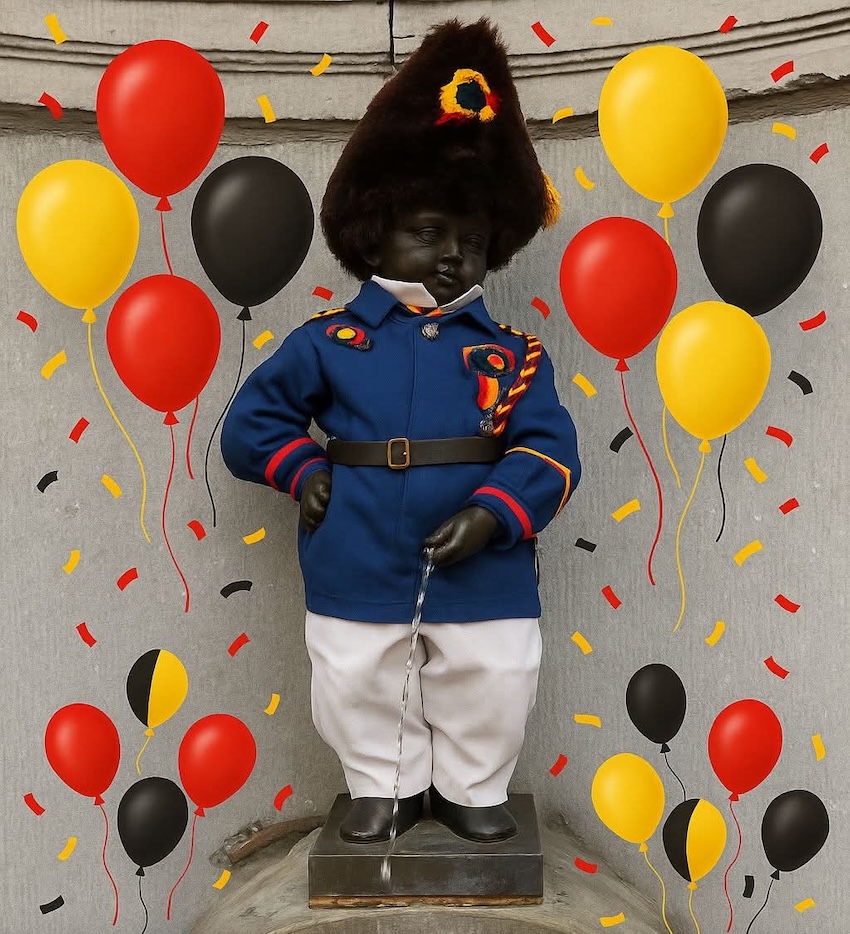
Source: Embassy of Belgium in Budapest
Photos by Péter Jekken/Embassy of Belgium in Budapest, and DPA

